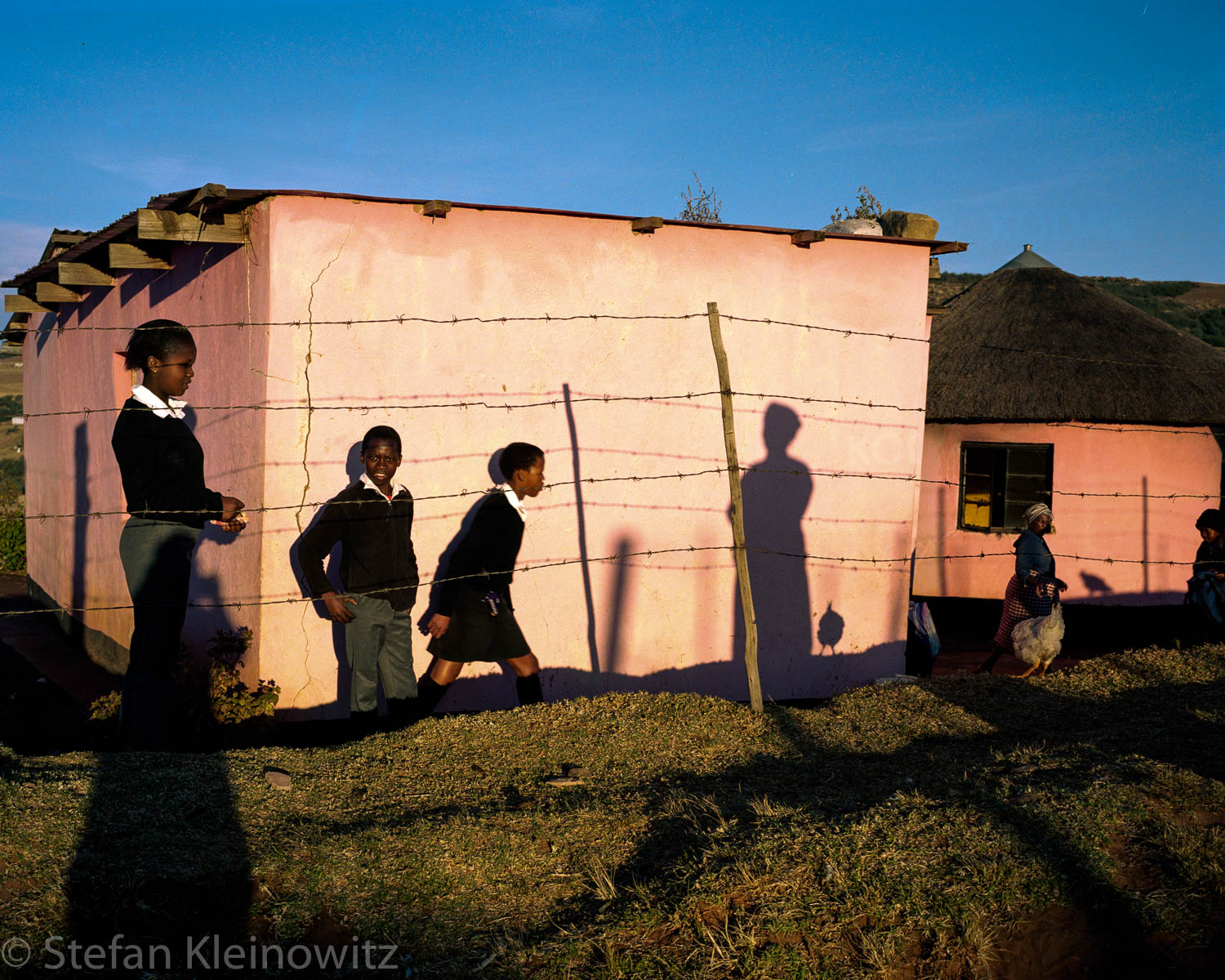
Early in the morning, school children brush their teeth in the garden and prepare for school.
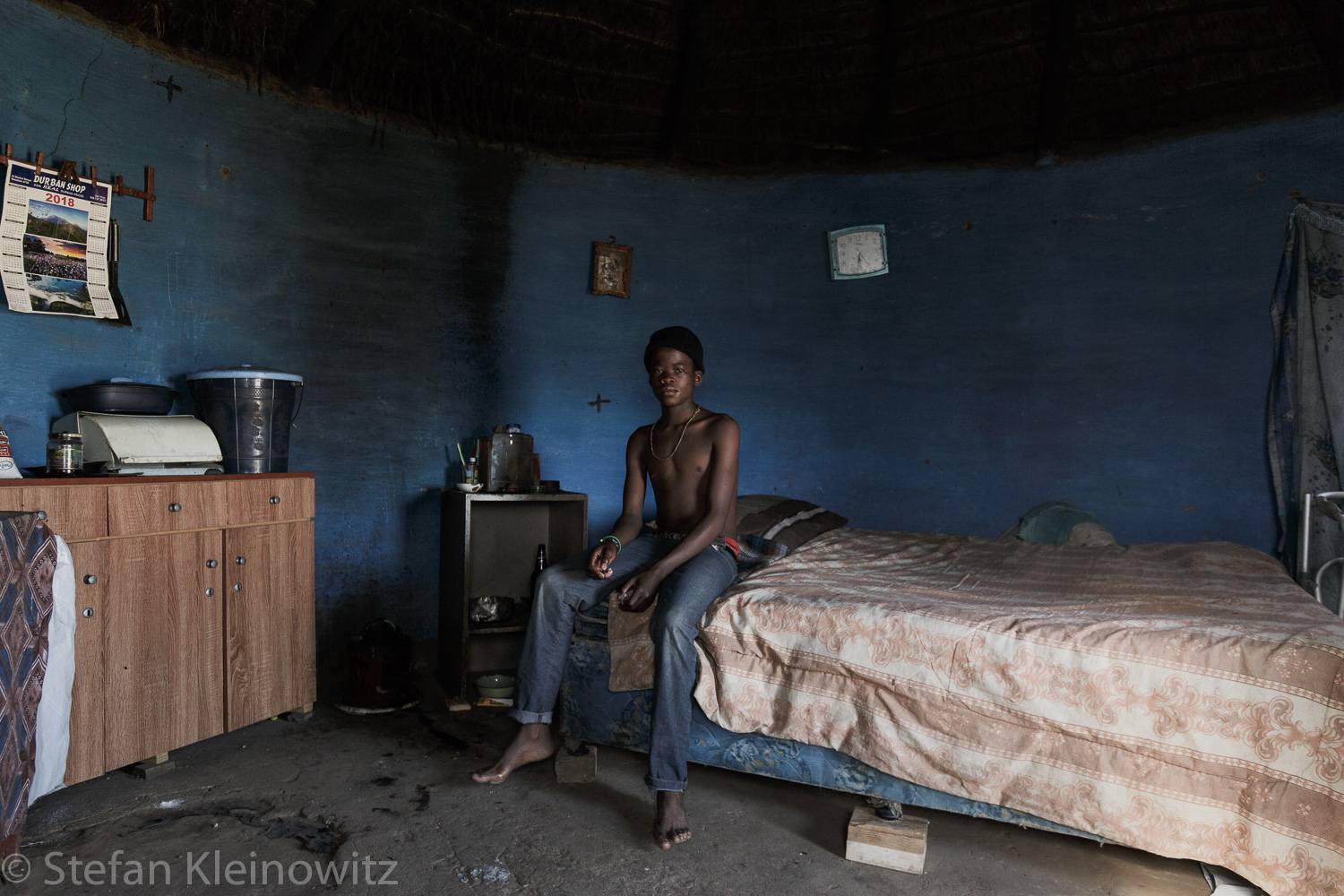
Luis, 14, sits on the bed in one of his family's mud houses, which he shares with his older brother and father. The blue round shaped house serves as a sleeping room, community area and a kitchen.
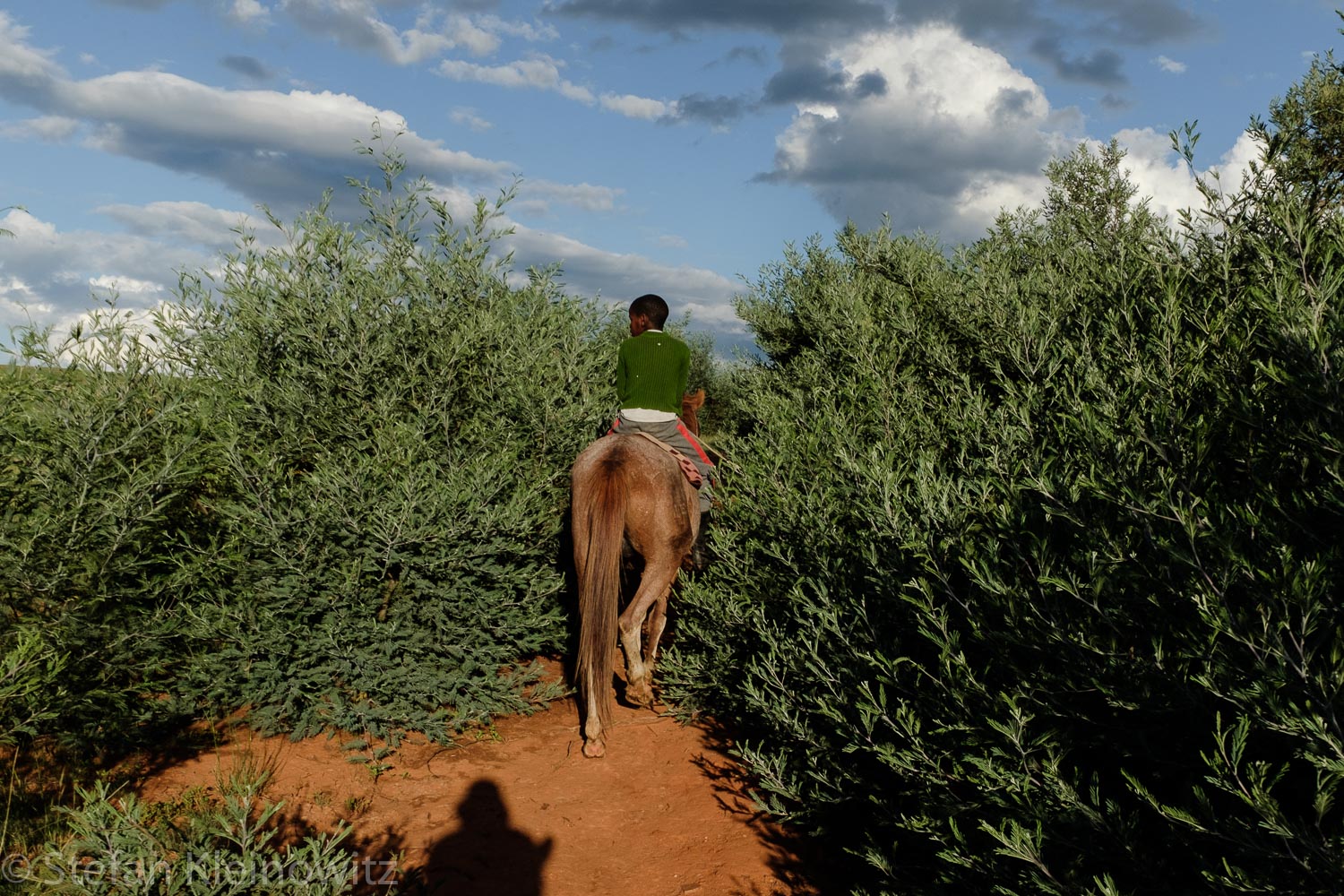
Thabo, 13, rides his horse home.
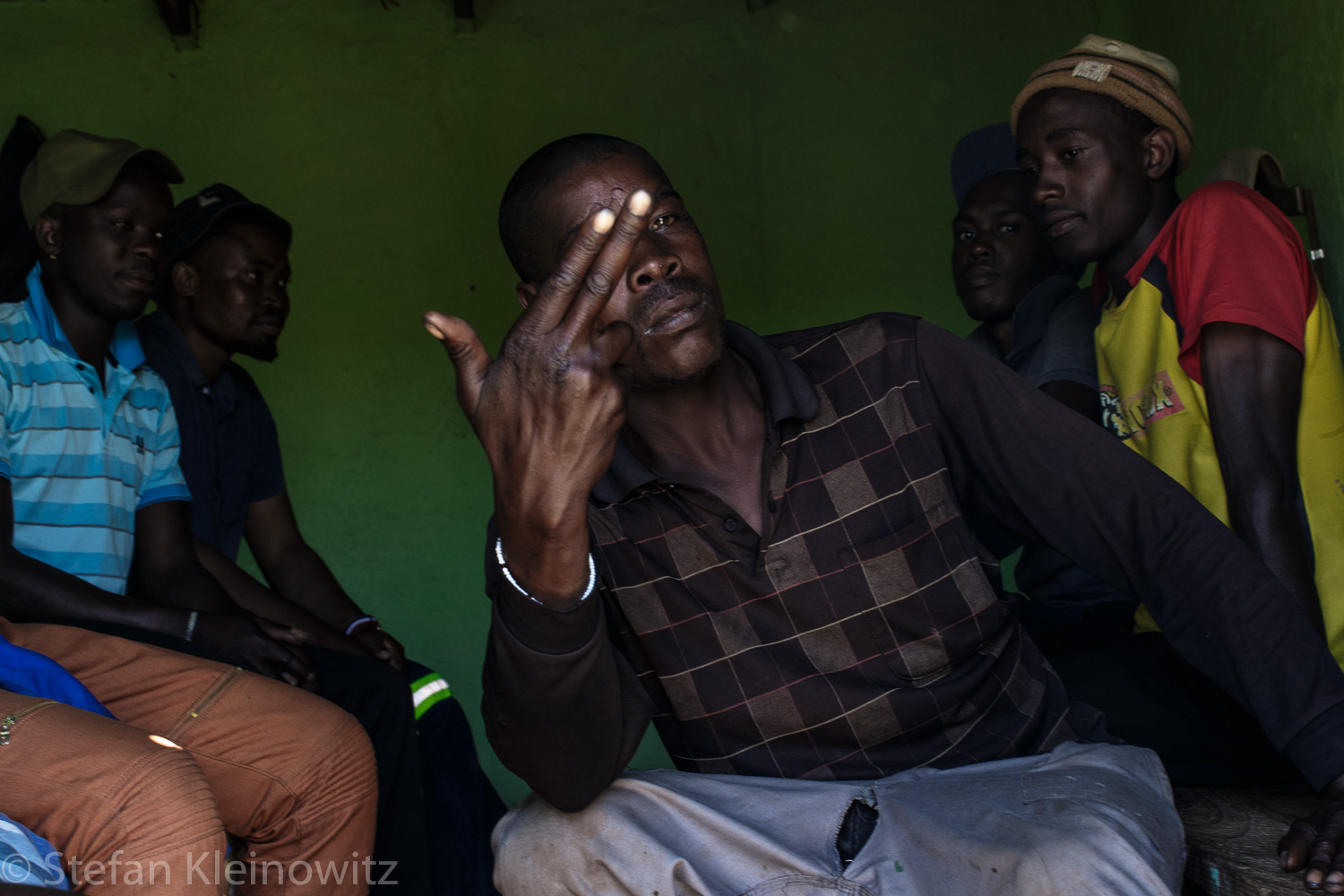
Bulelani, 29, ex convict at an initiation ceremony and a proud member of the 28 gang.
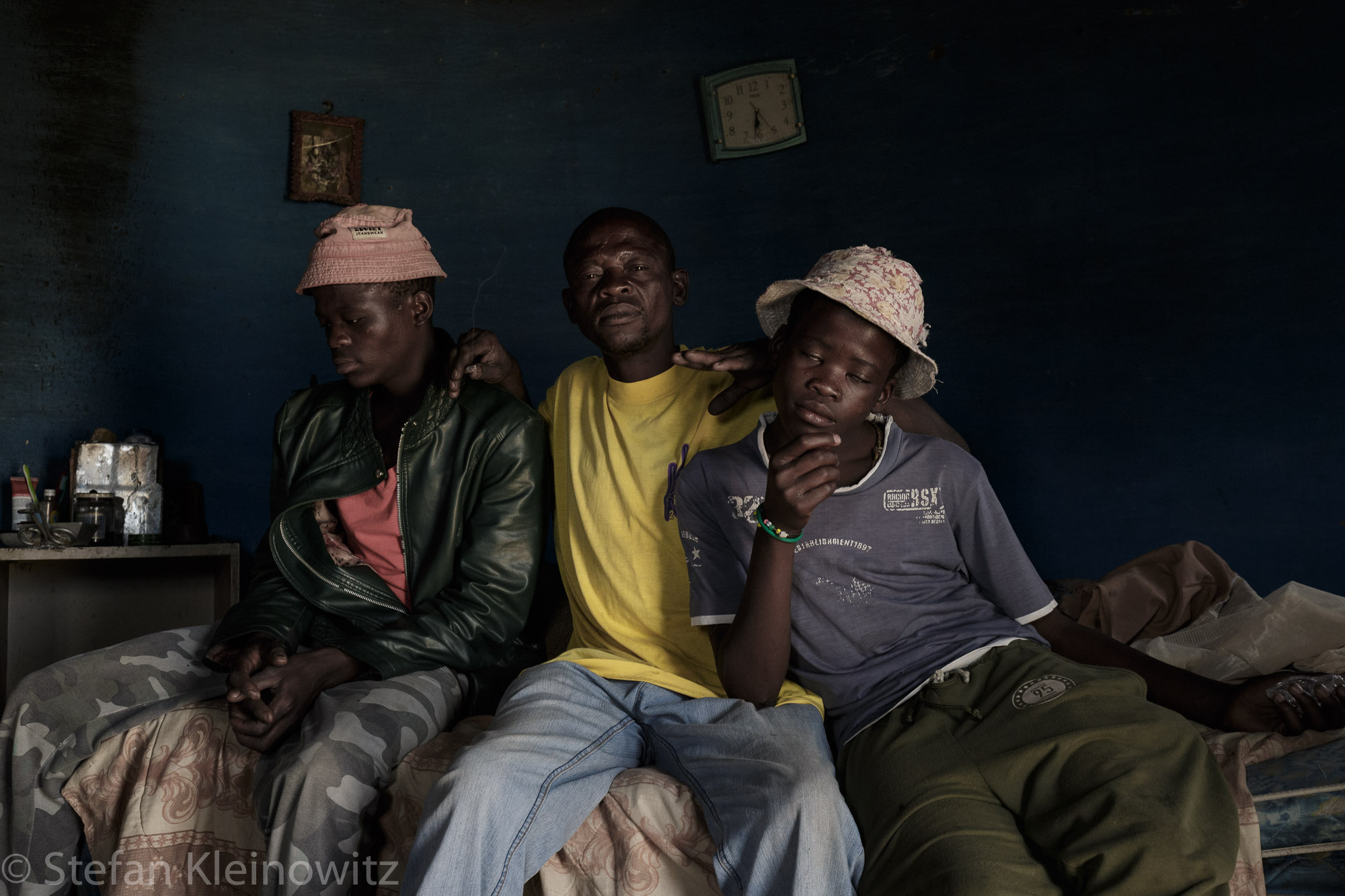
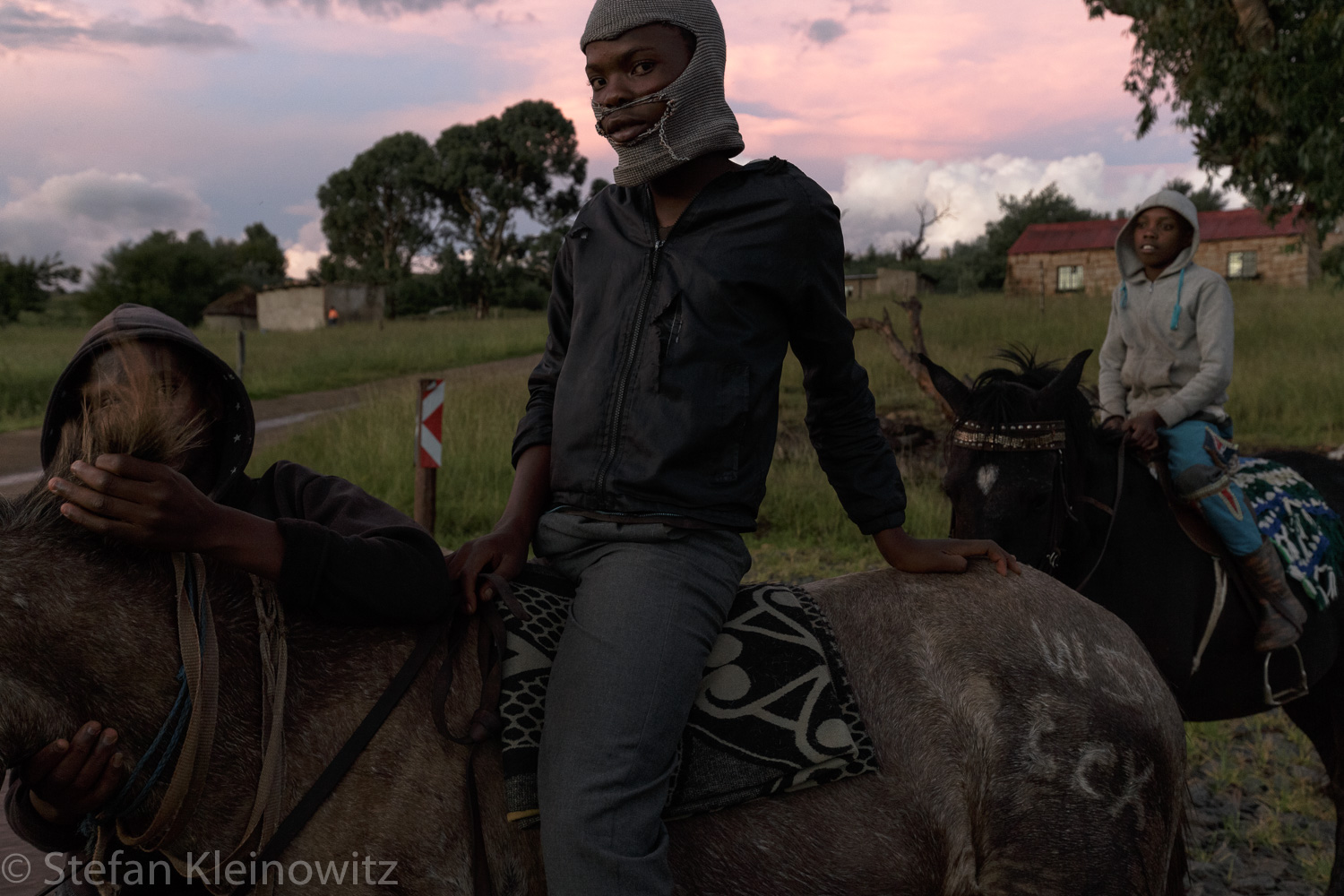
Three friends ride their horses in a small village named Zikhalini, in Matatiele - Eastern Cape Province. There are approximately 80 horses in this village, which is inhabited by Sotho and Xhosa people.
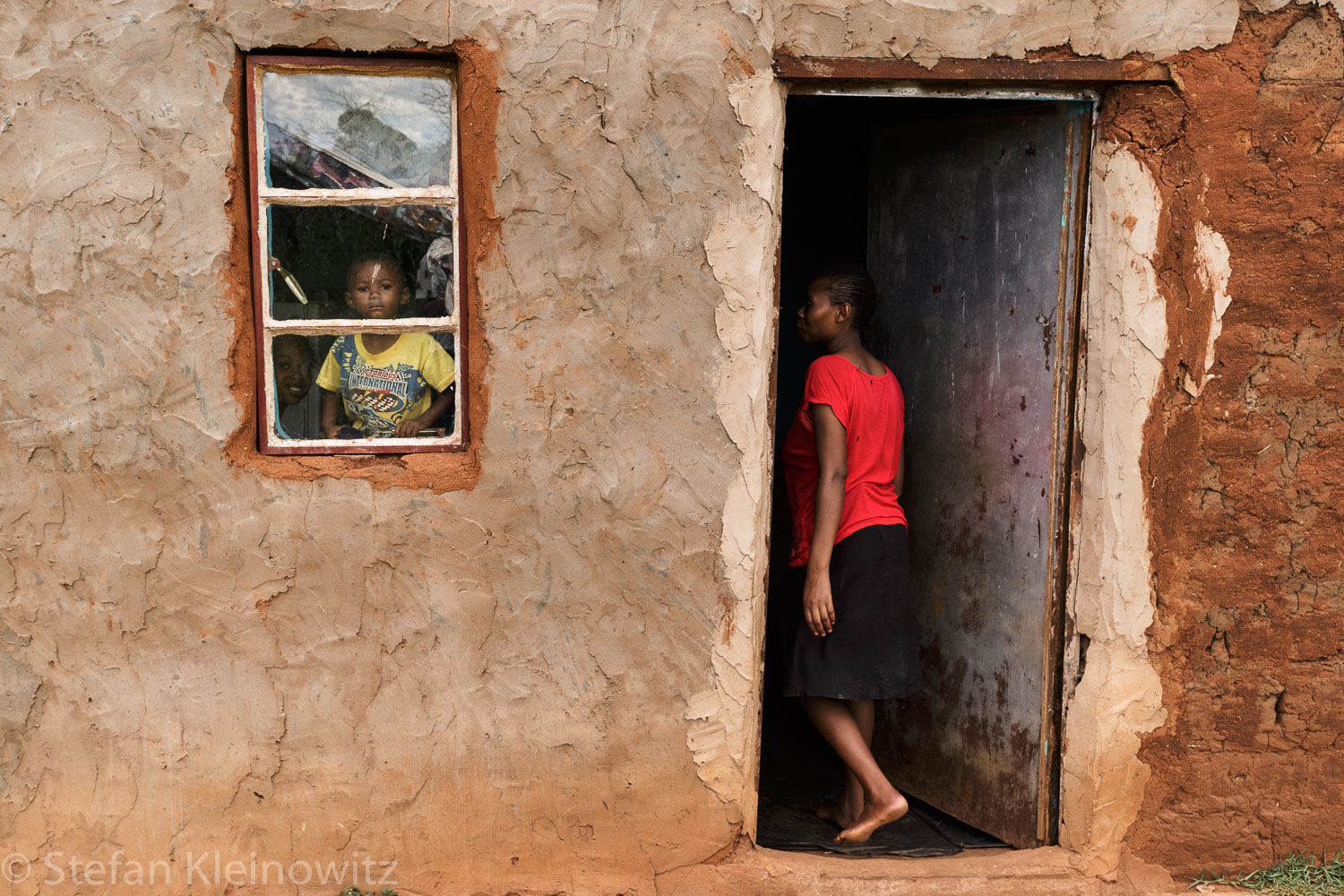
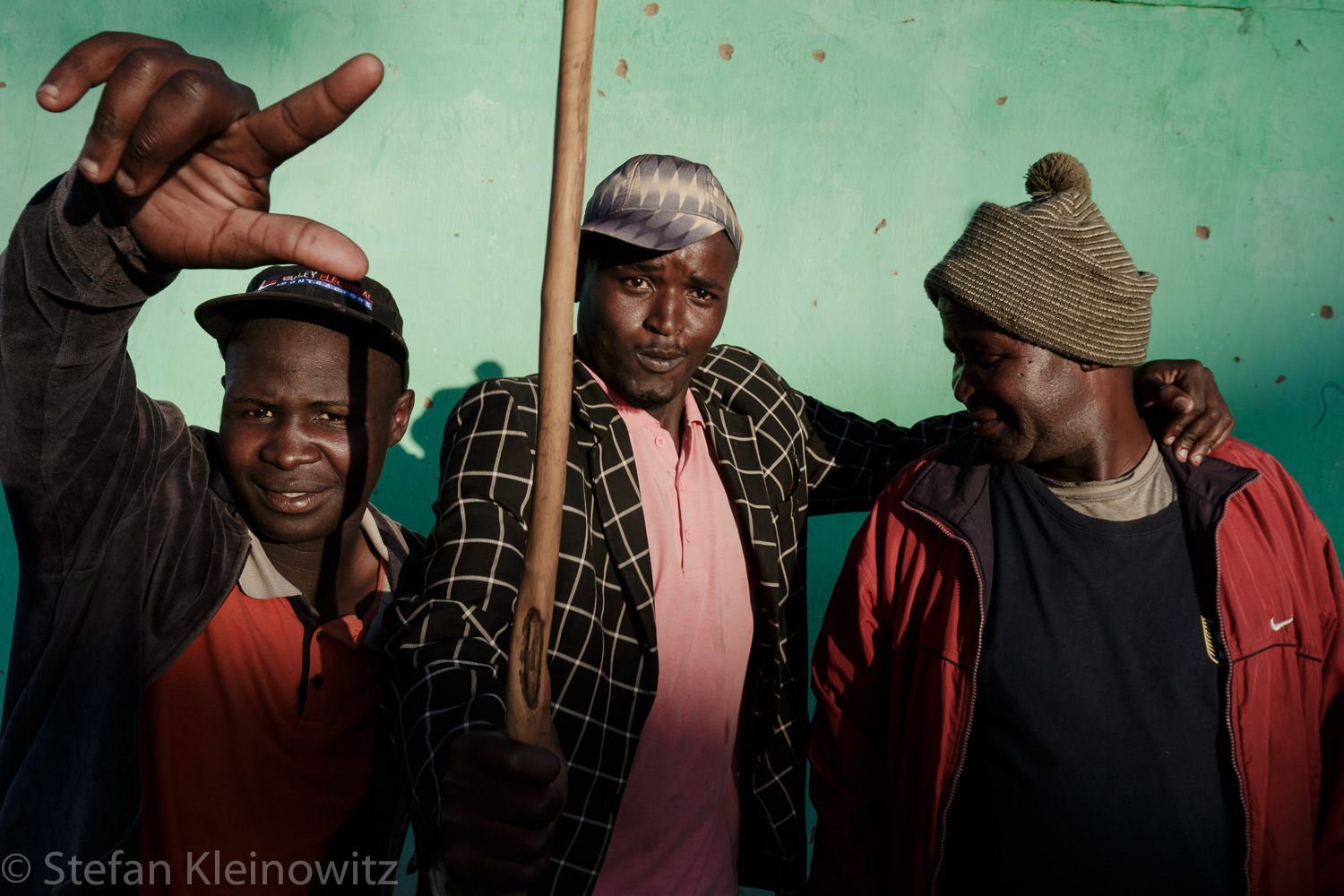
Three friends drink alcohol in the early evening outside a bar. Alcohol plays a big part of daily life at the Eastern Cape. Alcohol consumption is very normal and often explained as part of the culture. However, the alcohol consumed is no longer homemade traditional beer but strong and expensive liquor, which is enjoyed by many on a daily basis. People would often go without food for the entire day, but spend money on alcohol.
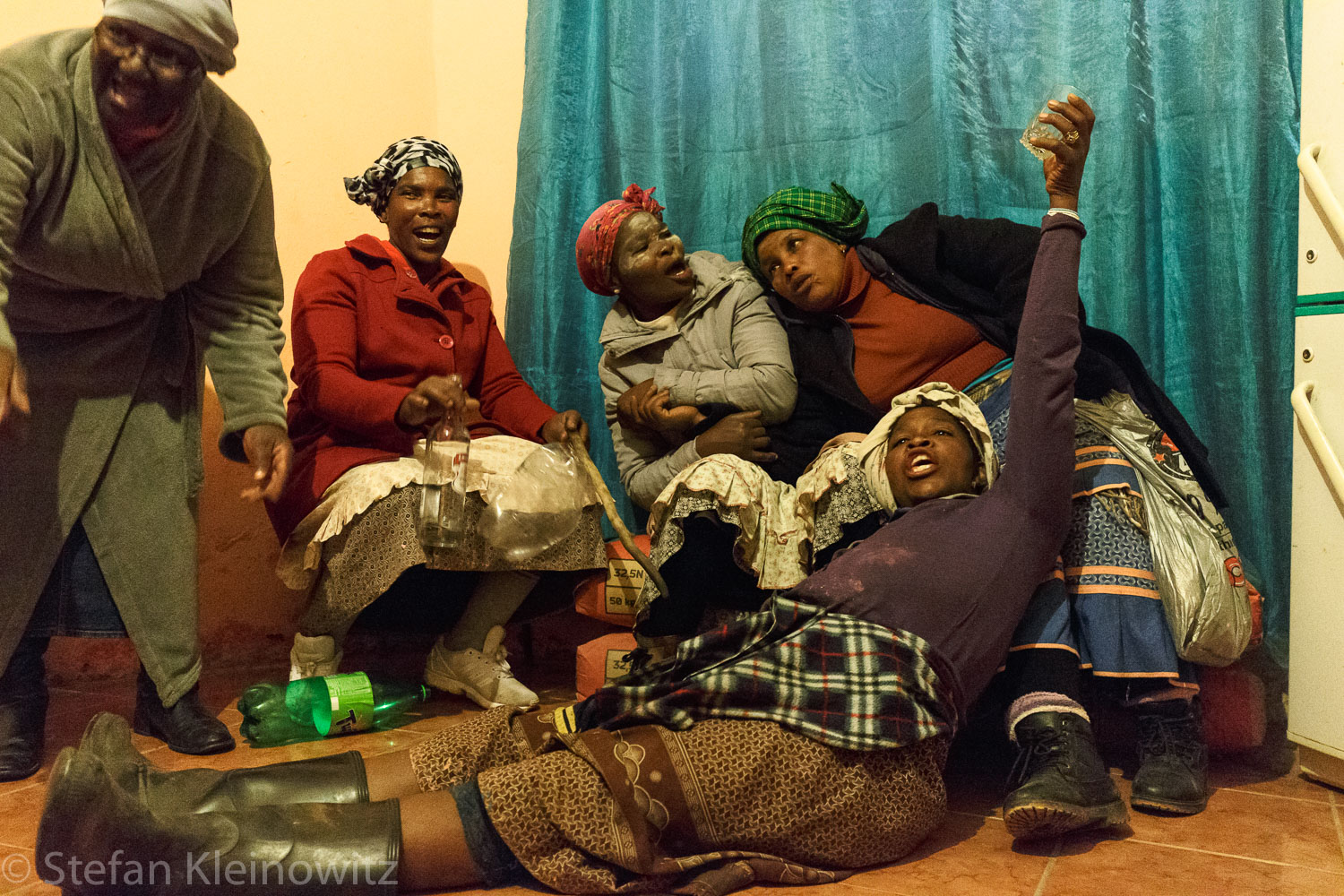
Xhosa women and mothers of initiates drink a lot of alcohol to celebrate their son's transition into manhood. Tomorrow their 'children' will return from the mountains and reunite with their families and communities as respected men.
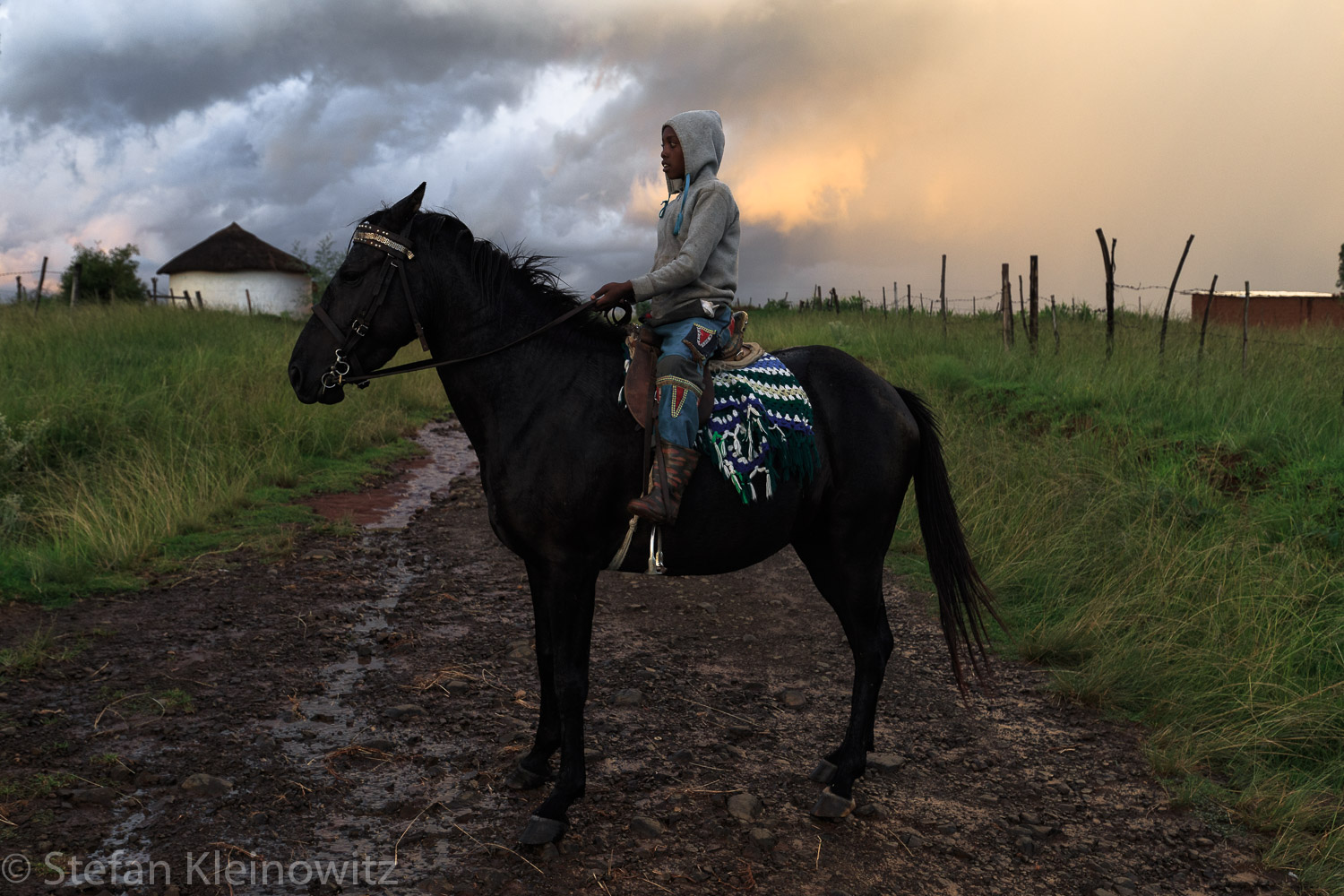
Muhtle, 11, sits on his horse after a heavy rainfall.
Horses and dogs are loyal and loved companions in the villages of the Eastern Cape. Muhtle rides horses since the age of three. He says:
'I love horses. Riding a horse makes me happy. It makes me feel free. Sometimes it feels like flying.'
This is his father's horse; it is the strongest and biggest horse in the village.
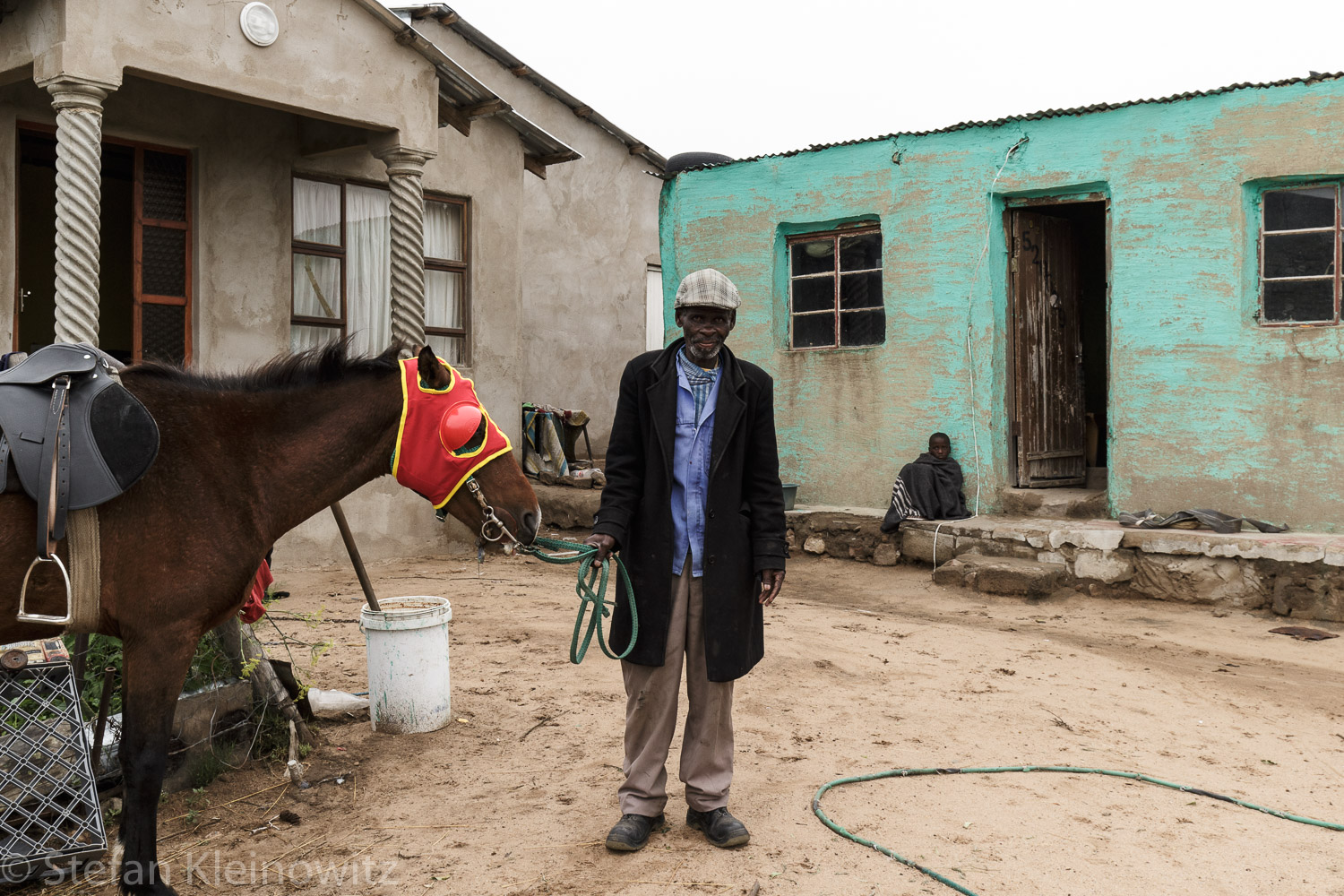
James is 75, and grandfather of thirteen grandchildren. He owns five horses, fourteen cows, and over thirty chickens. This is his youngest horse, and his favourite. He says,that it is a bit stubborn and unpredictable, but very fast. The red blinkers help the horse to look straight, and prevent the horse from becoming distracted during a horse race. James uses it sometimes for fun. His grandchildren use it every day to travel, to look after the cattle, and to race across the villages.
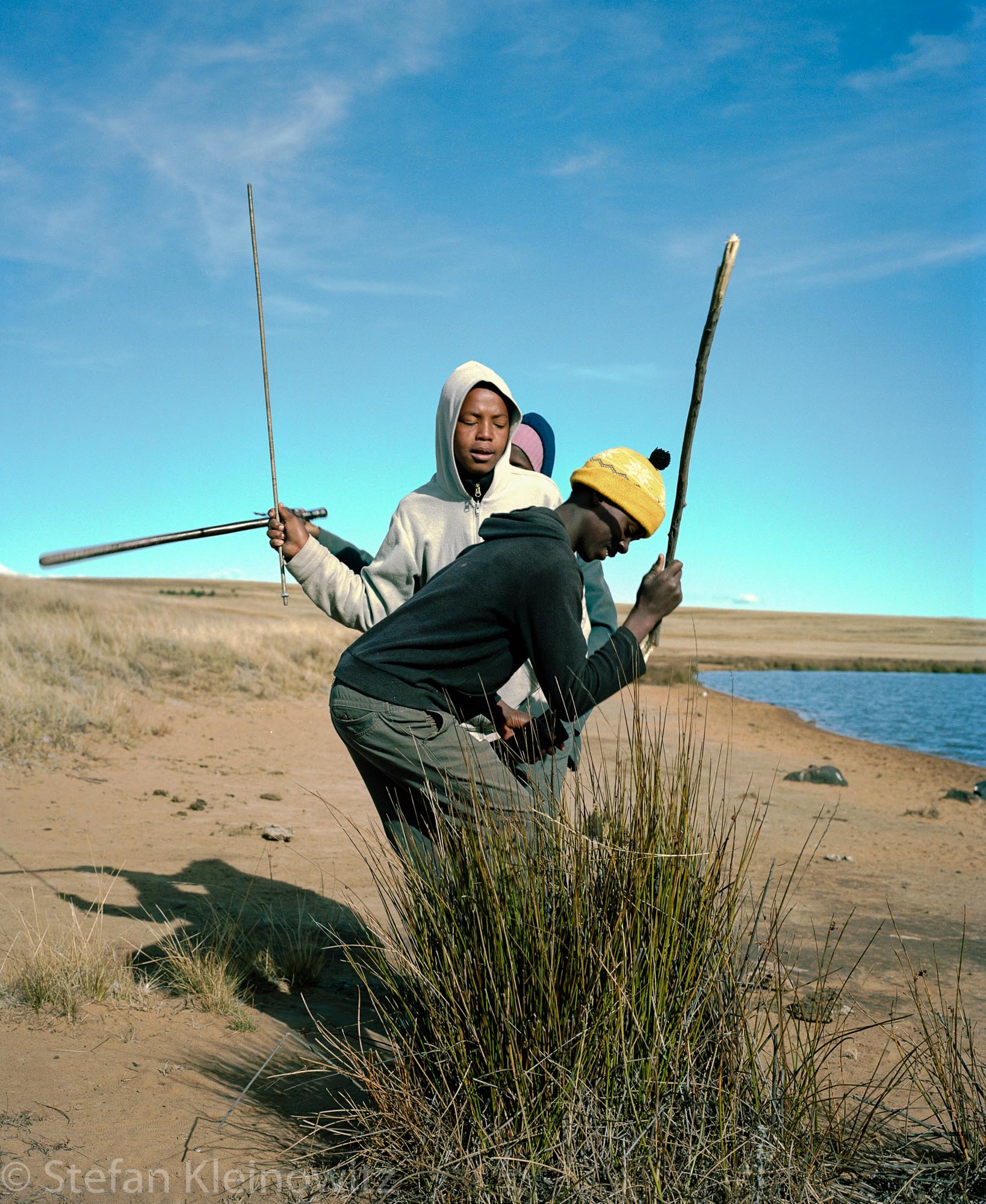
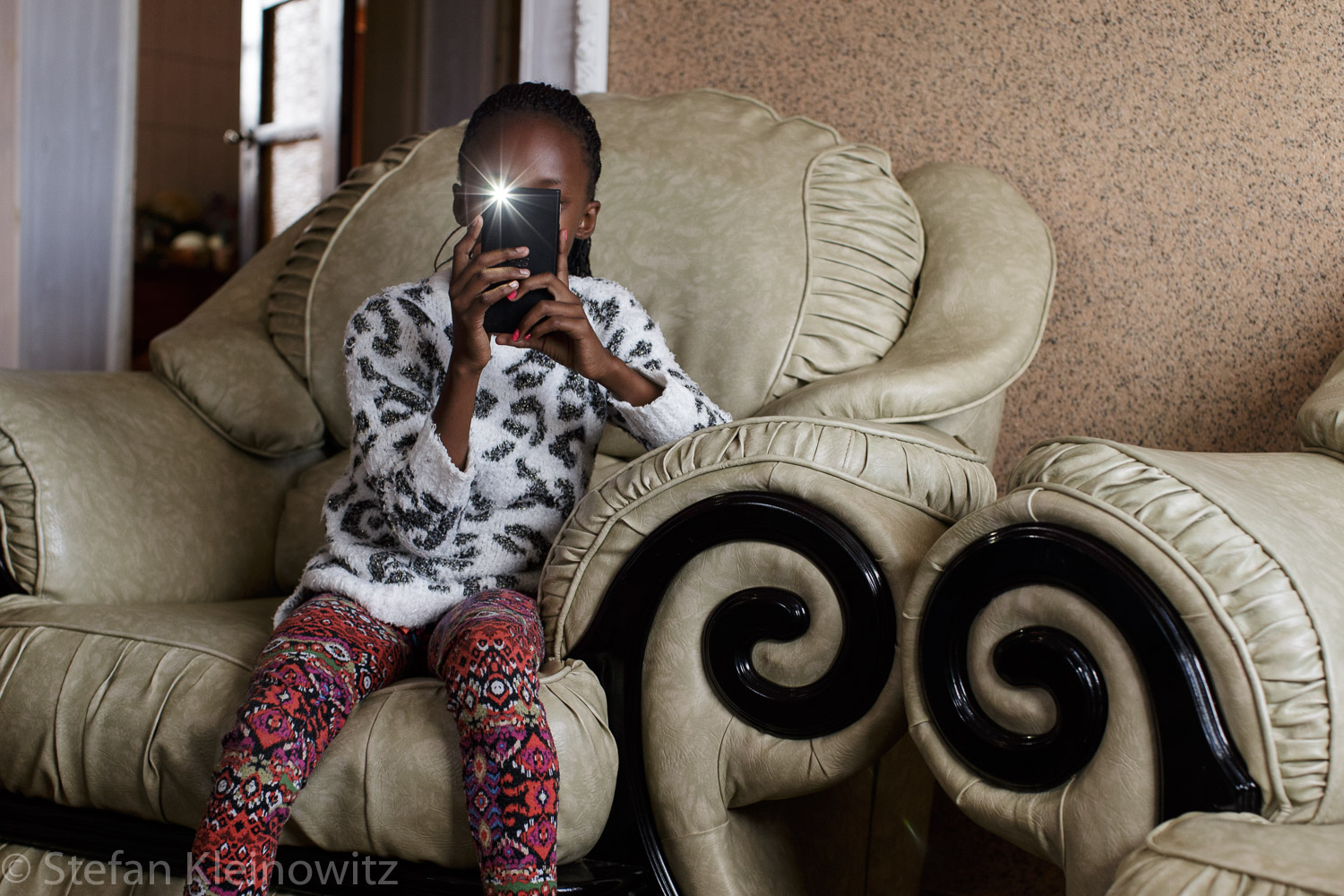
A young girl attends a wedding and plays with her stylish smartphone. In villages in which people have gained financial power the living standards have increased drastically. Instead of cattle and horses, fashion, new cars, and smart phones have become status symbols of the new middle class.
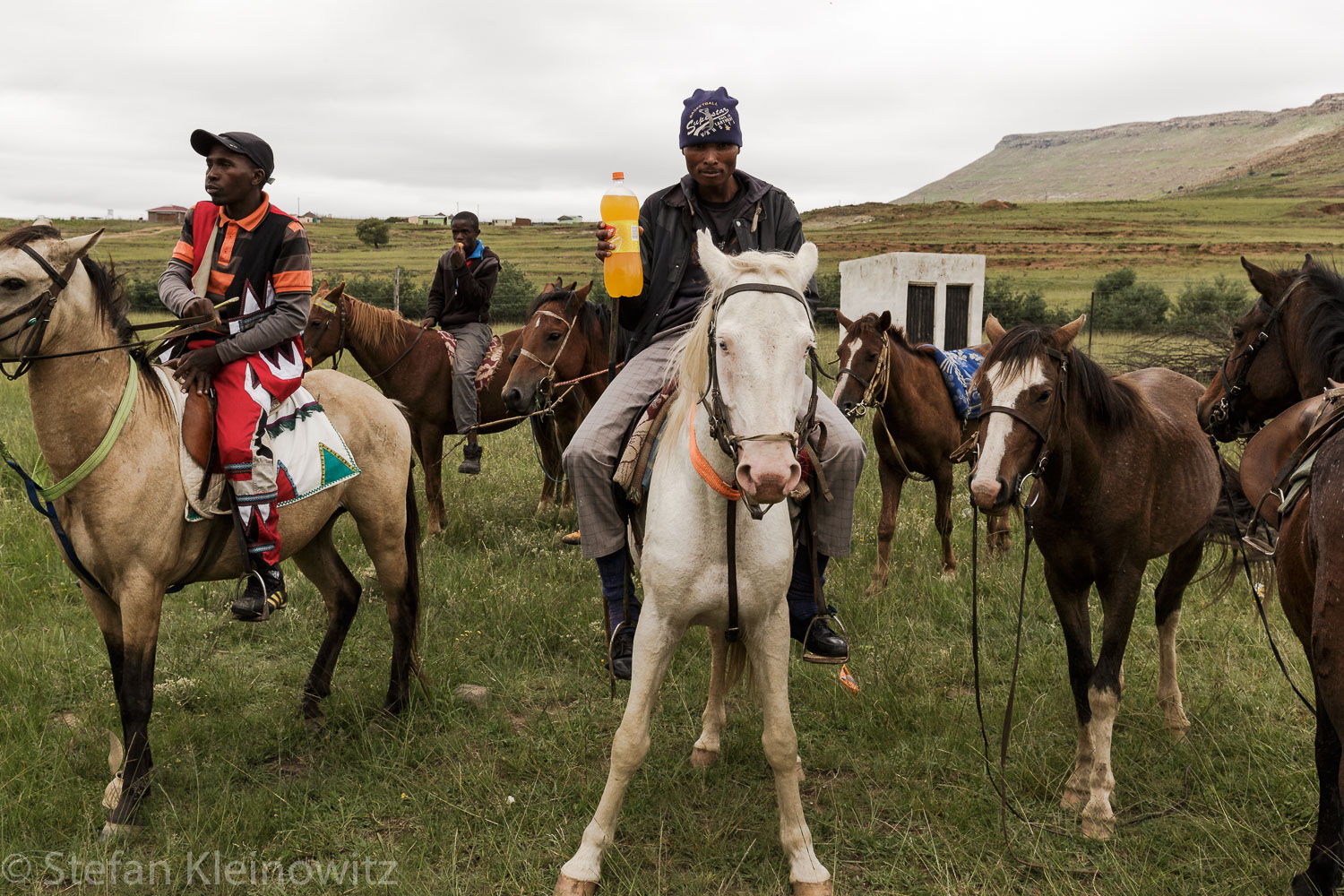
Xhosa and Sotho men from two neighbouring villages meet to participate in a horse race.
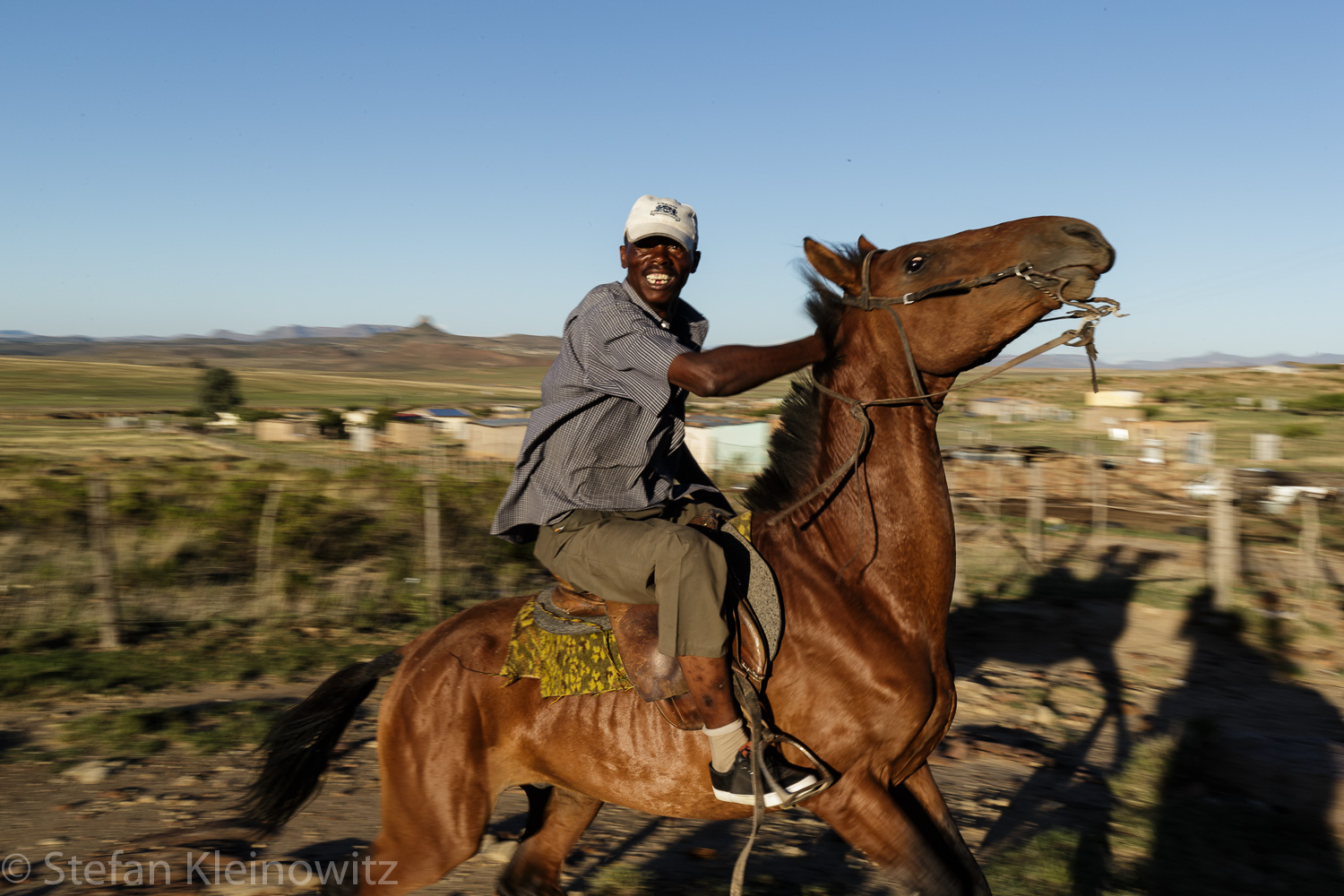
Scwebu, 46, rushes home after a long day on the farm.
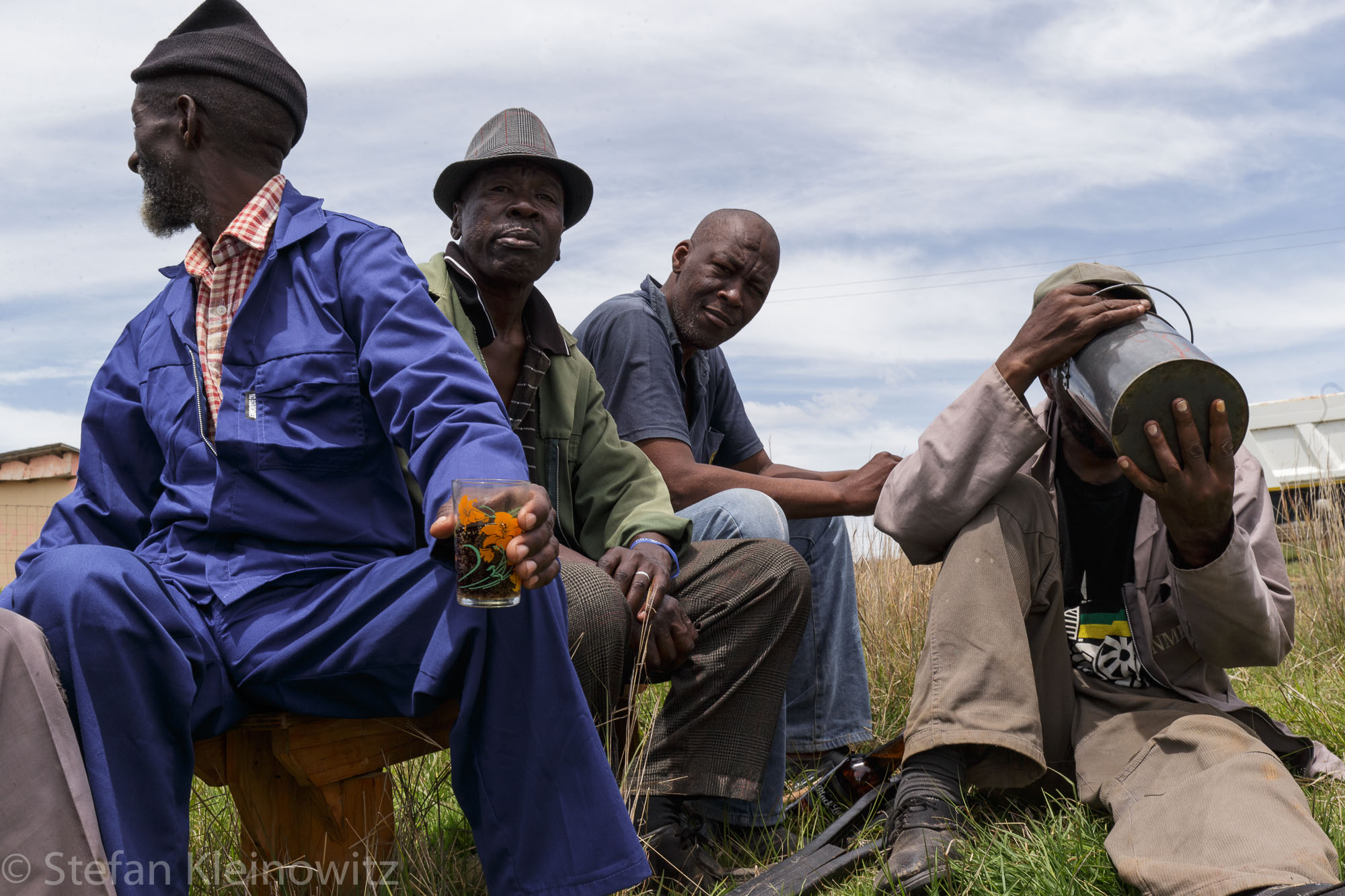
Xhosa men sit together and drink traditional home made beer.
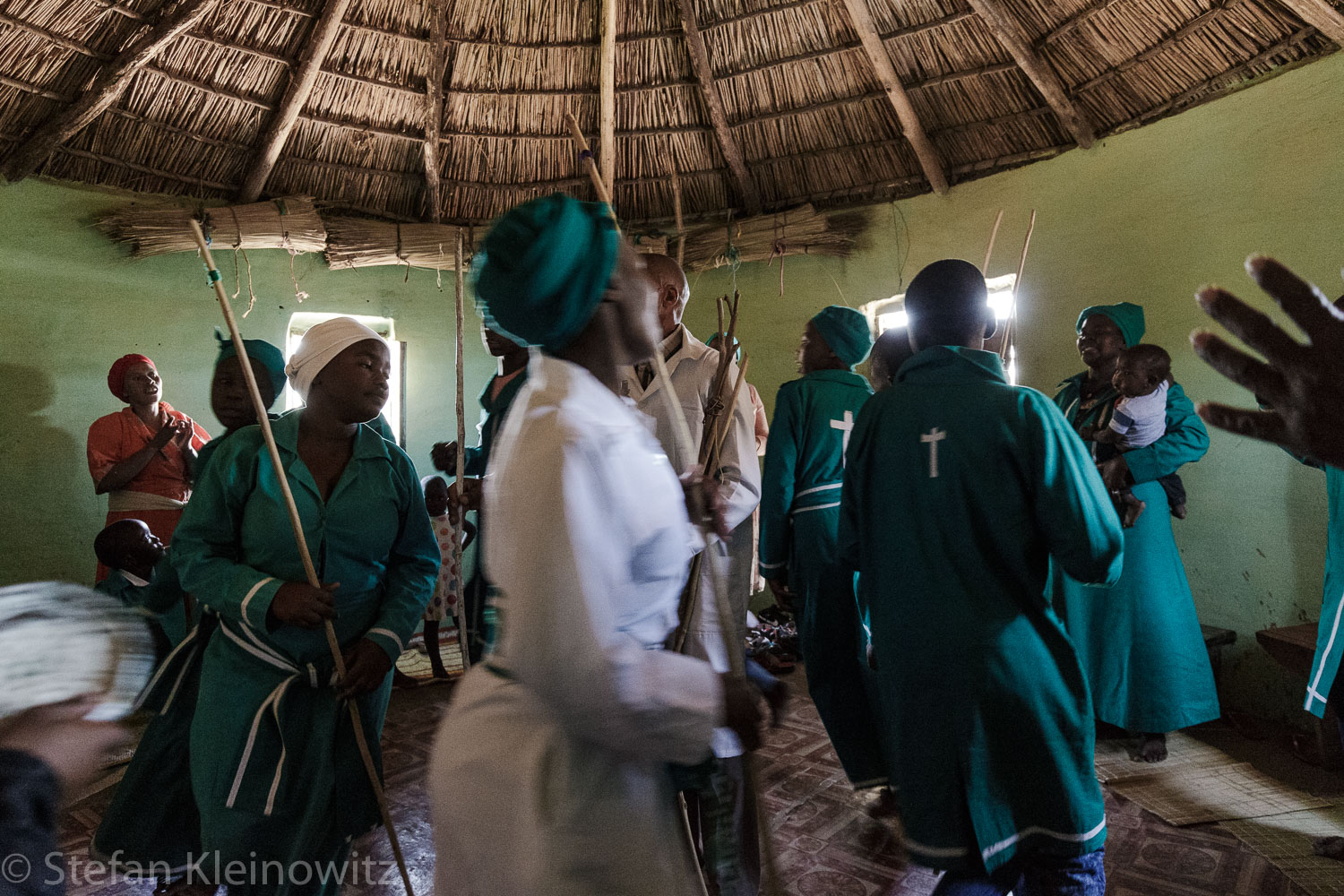
About twenty-five people visit the Sunday church service. The attendees are family members, close friends and neighbours. The service lasts for more than three hours.
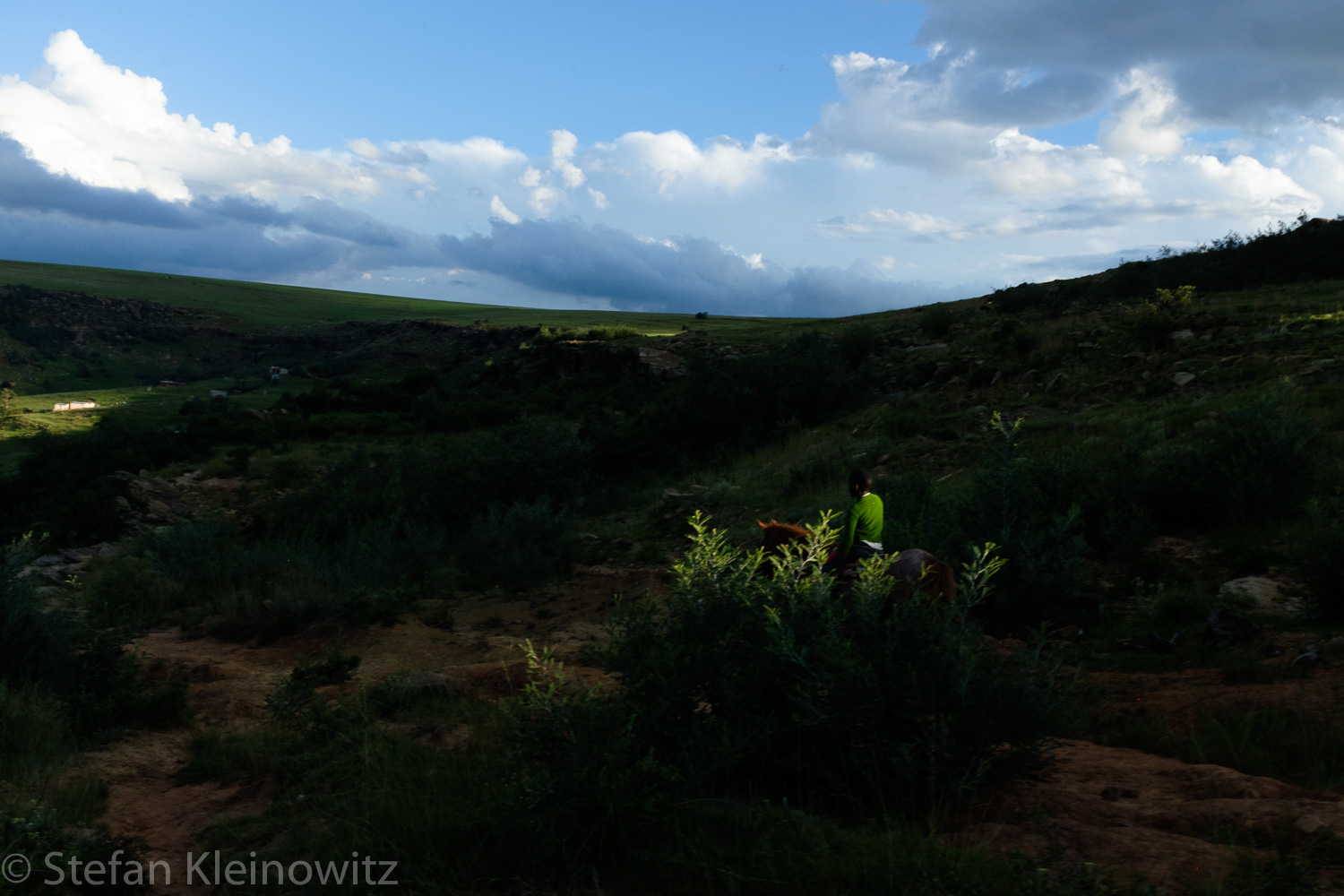
Thabo, 13, rides his horses home.
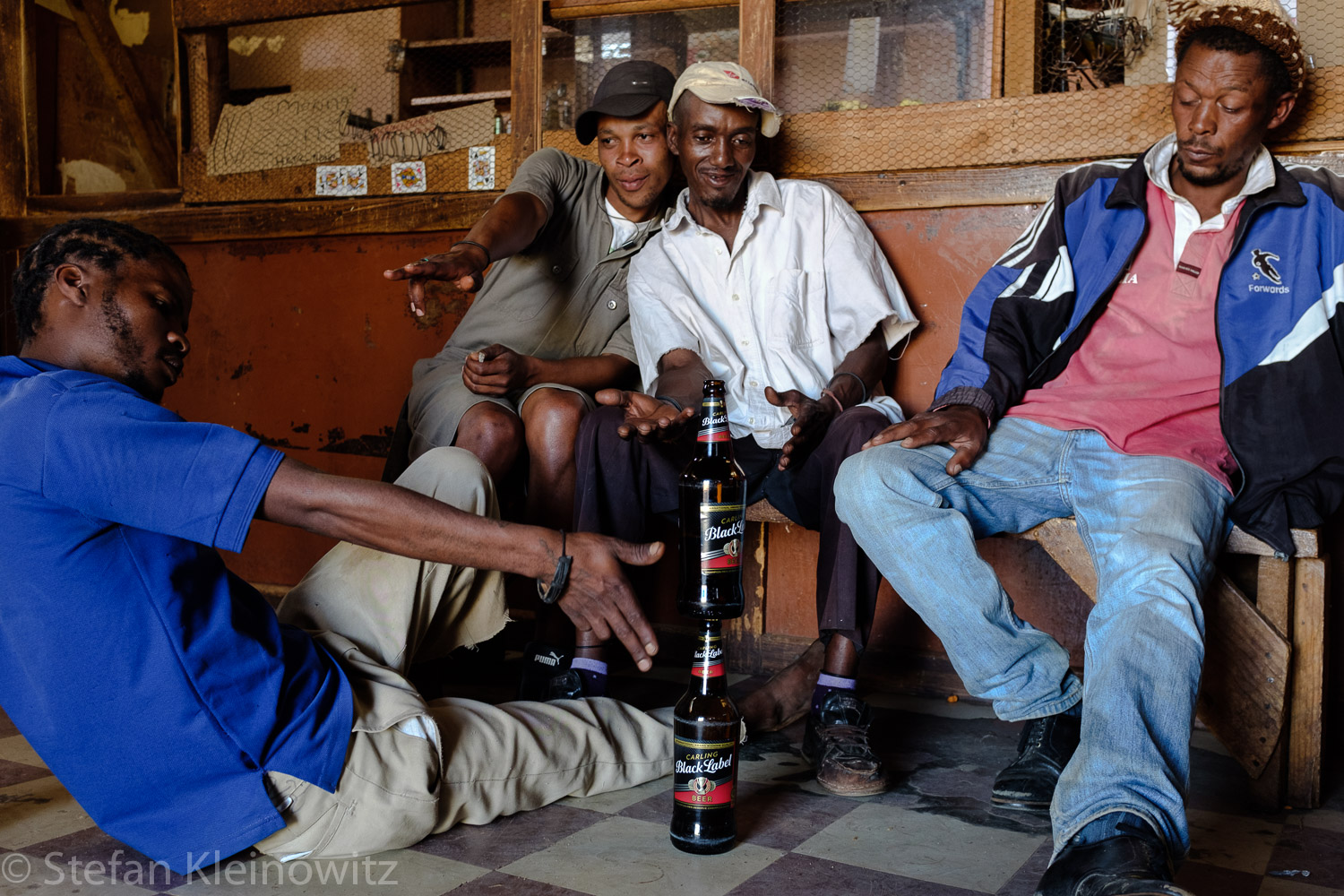
Friends and neighbours of a village drink bottles of Black Label in a small tavern.
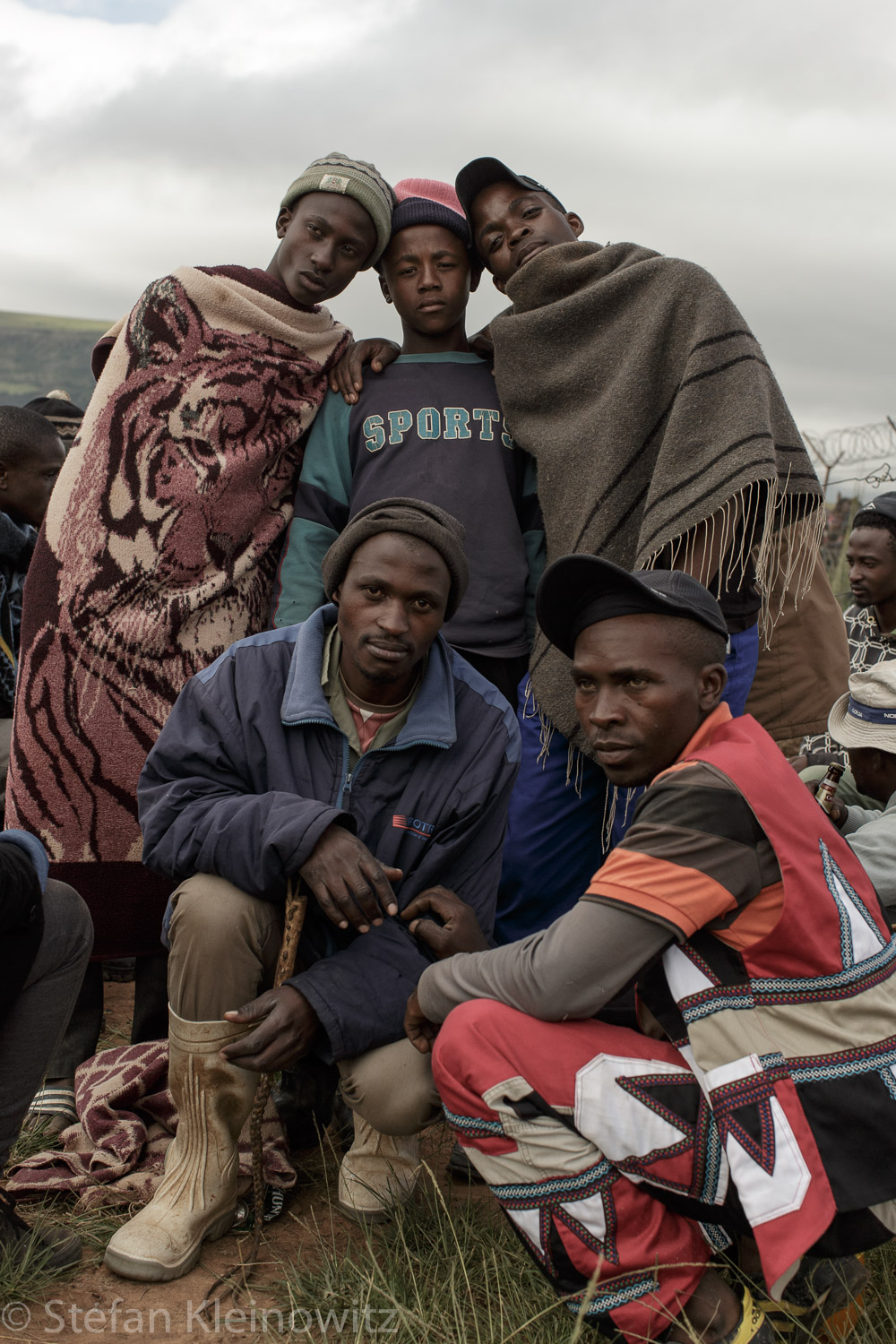
Friends sit together after a horse race and drink beer.
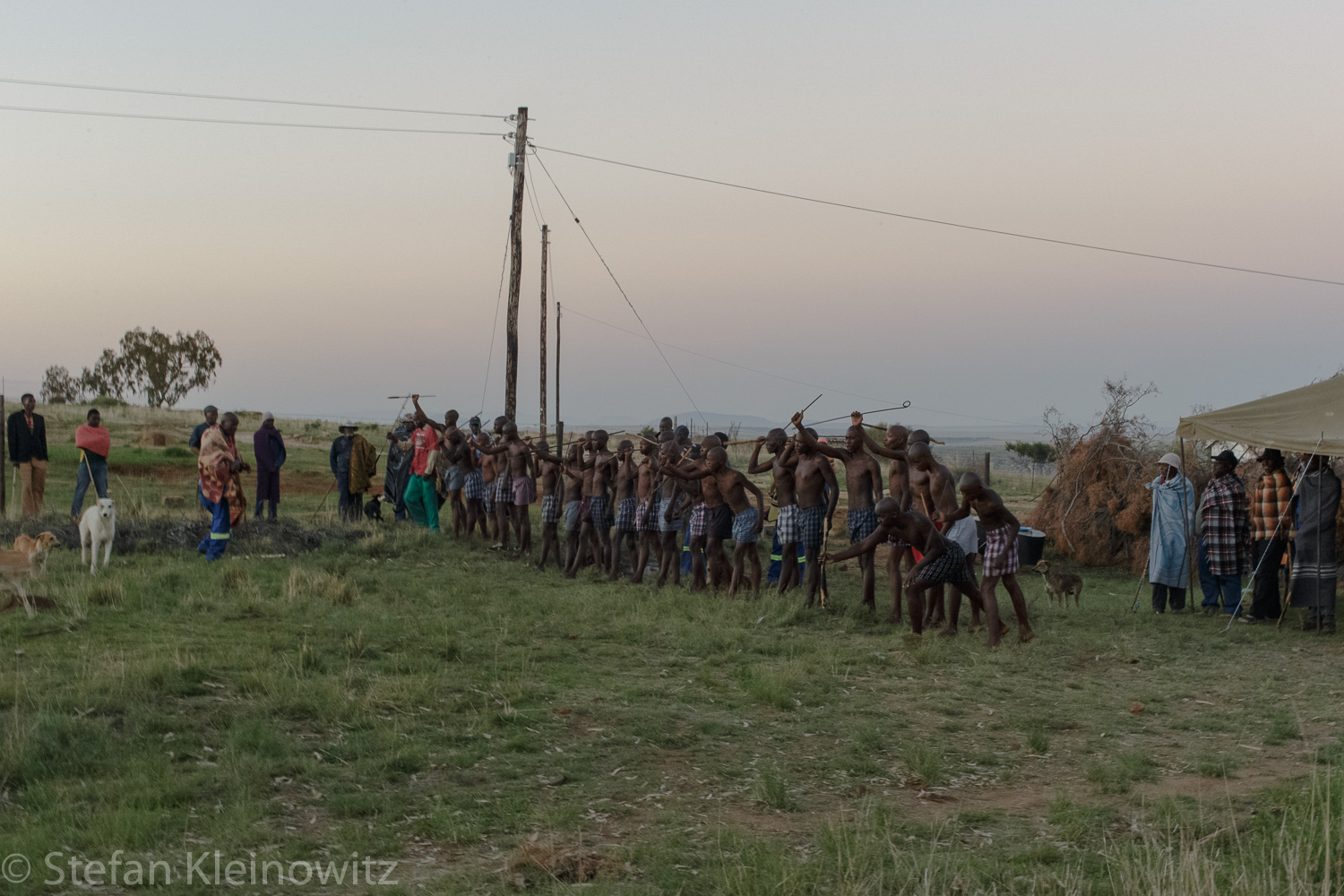
Hlubi tribe initiates return home after they spent five weeks on the mountains. At 5:30 a.m in the morning, initiates throw their spears towards the rising sun.
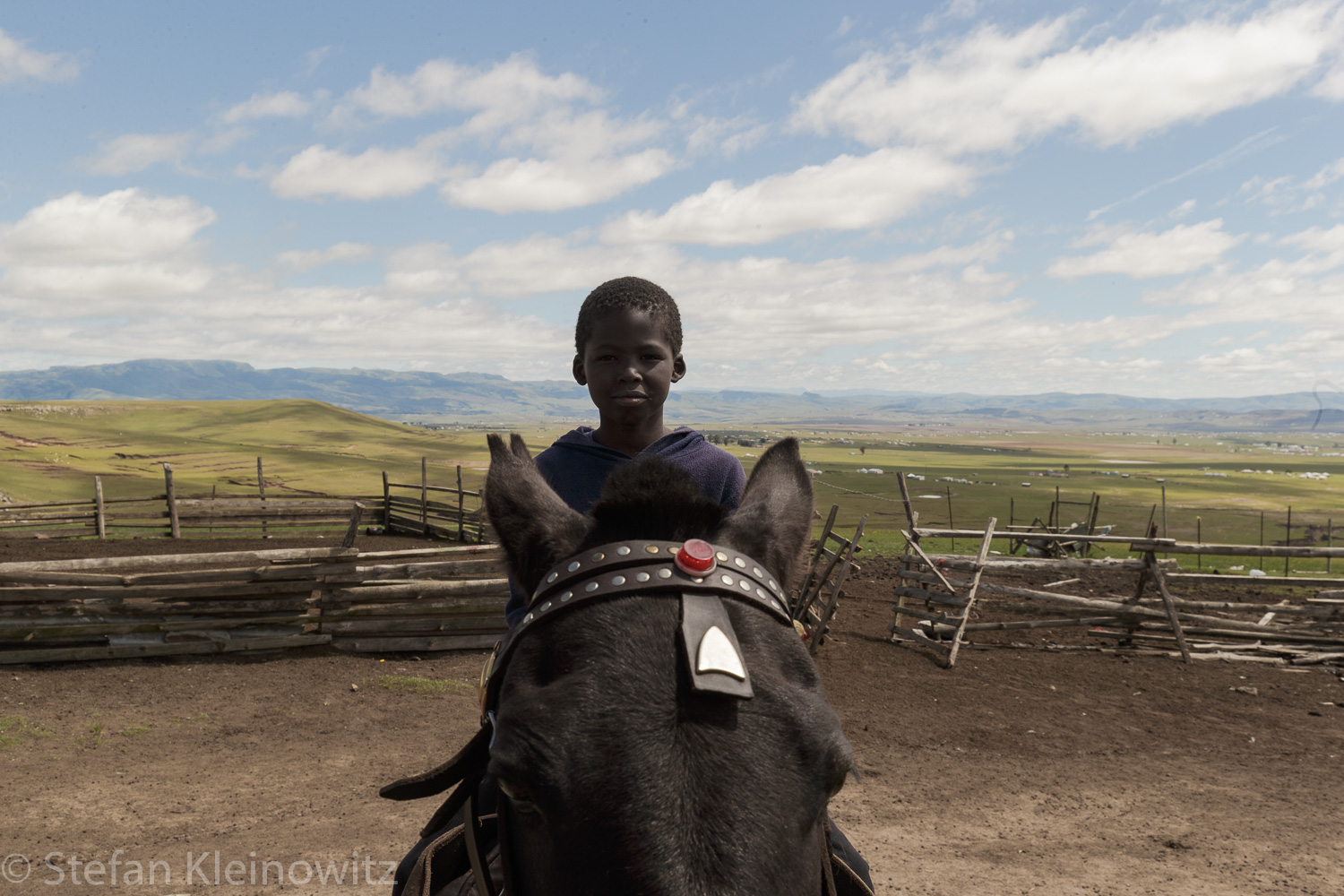
Sabelo, 6, sits on his favourite horse.
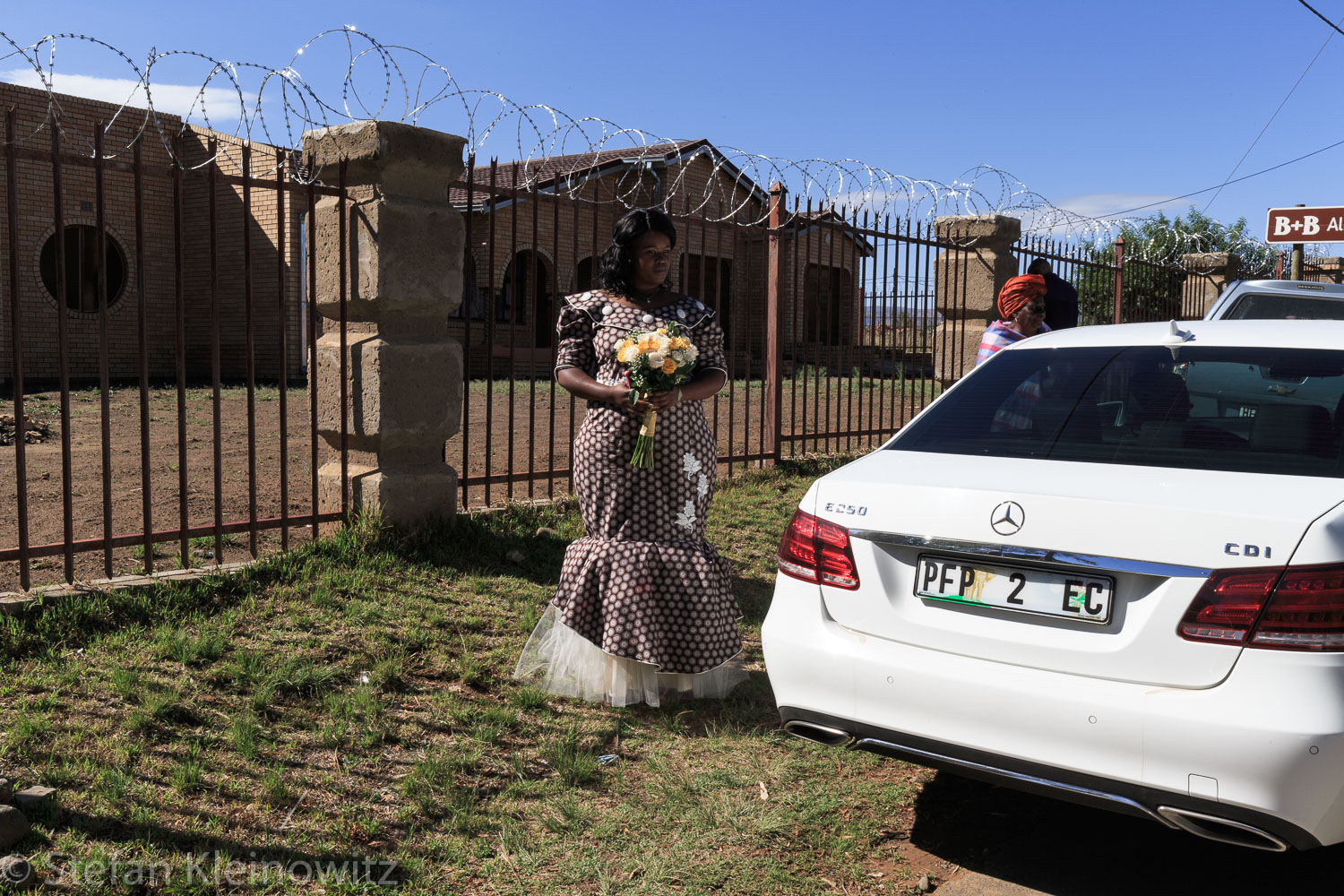
A bride stands with a bouquet of flowers next to the car of her husband's family. In some larger villages of the Eastern Cape, where people have been able to accumulate wealth through cattle, farming and illegal diamond mining, German cars such as a VW Polo or Mercedes Benz have become the new status symbol. Cars and bigger houses with electricity and running water have replaced horses as a sign of wealth and social status.
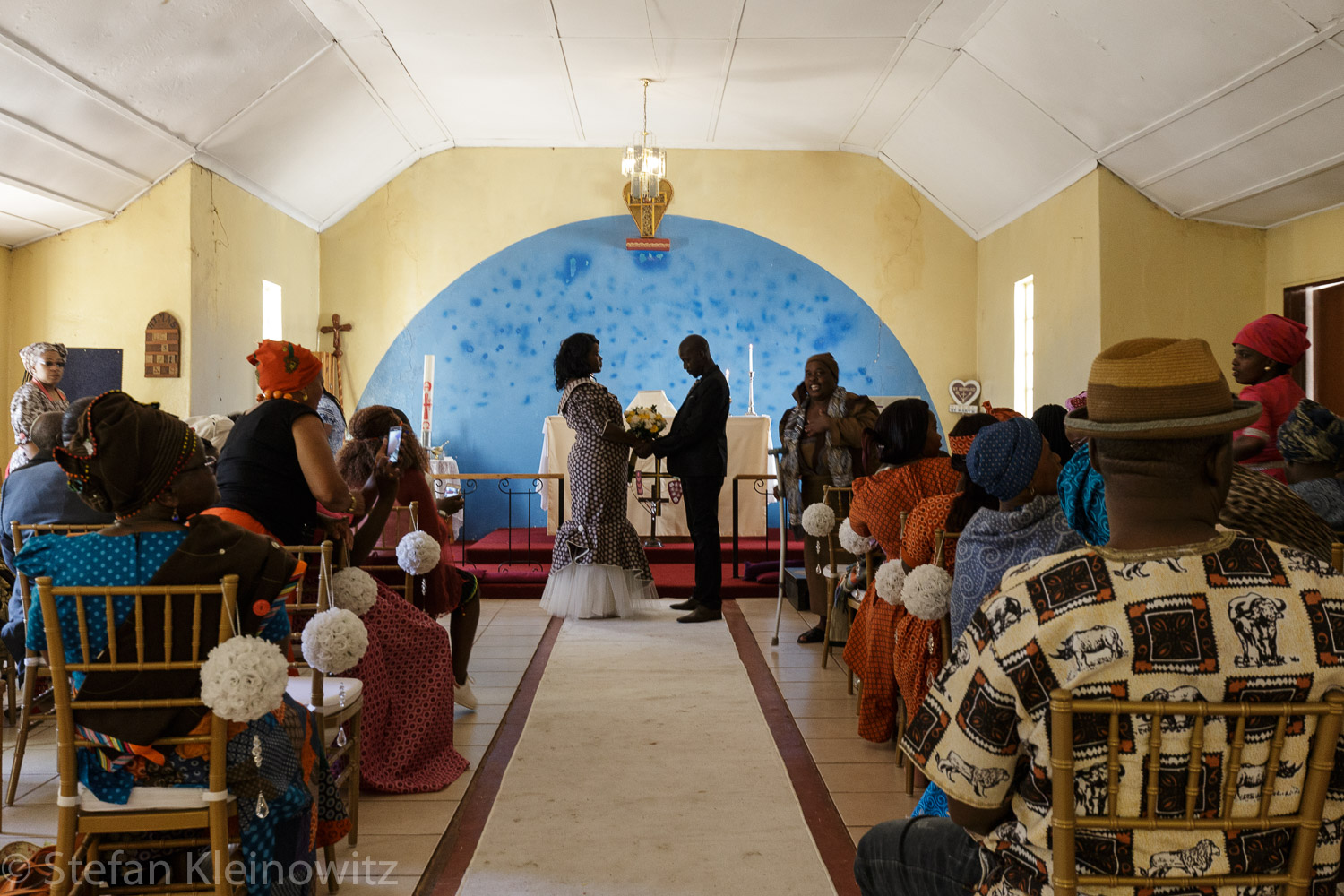
A couple of the Xhosa tribe gets married.
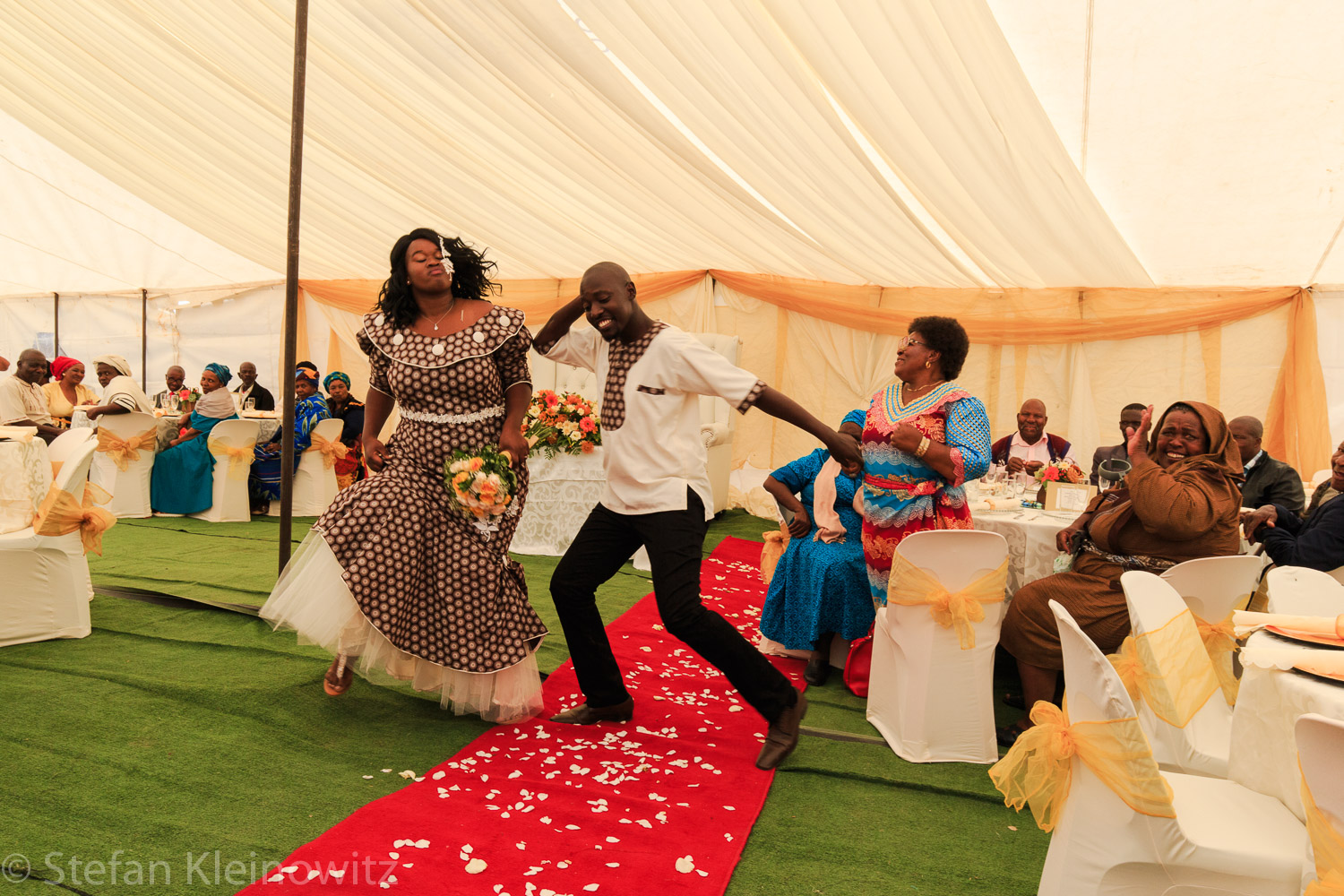
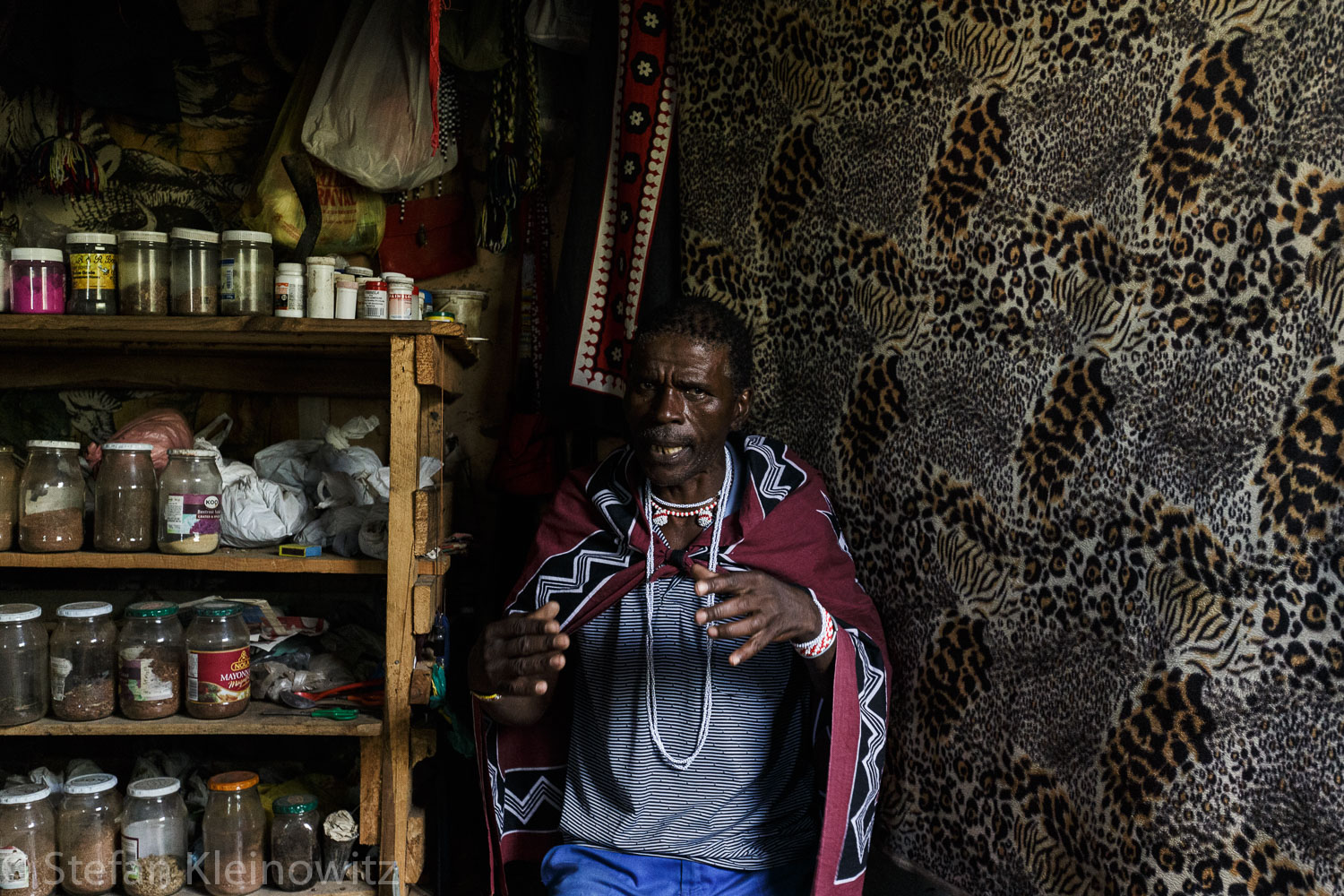
A traditional healer reads the bones in front of him and tells his patient how to deal with family issues and other personal problems.
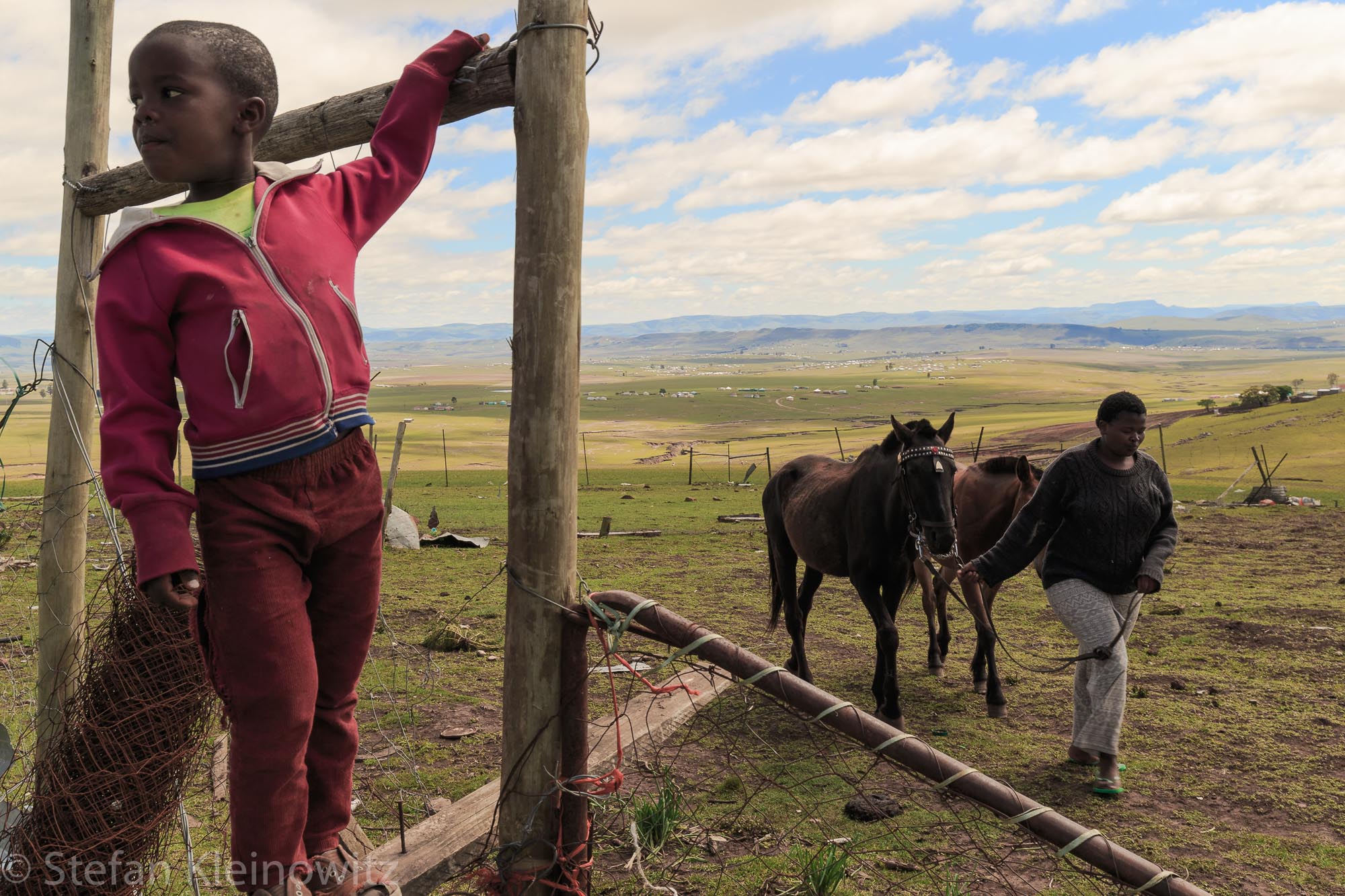
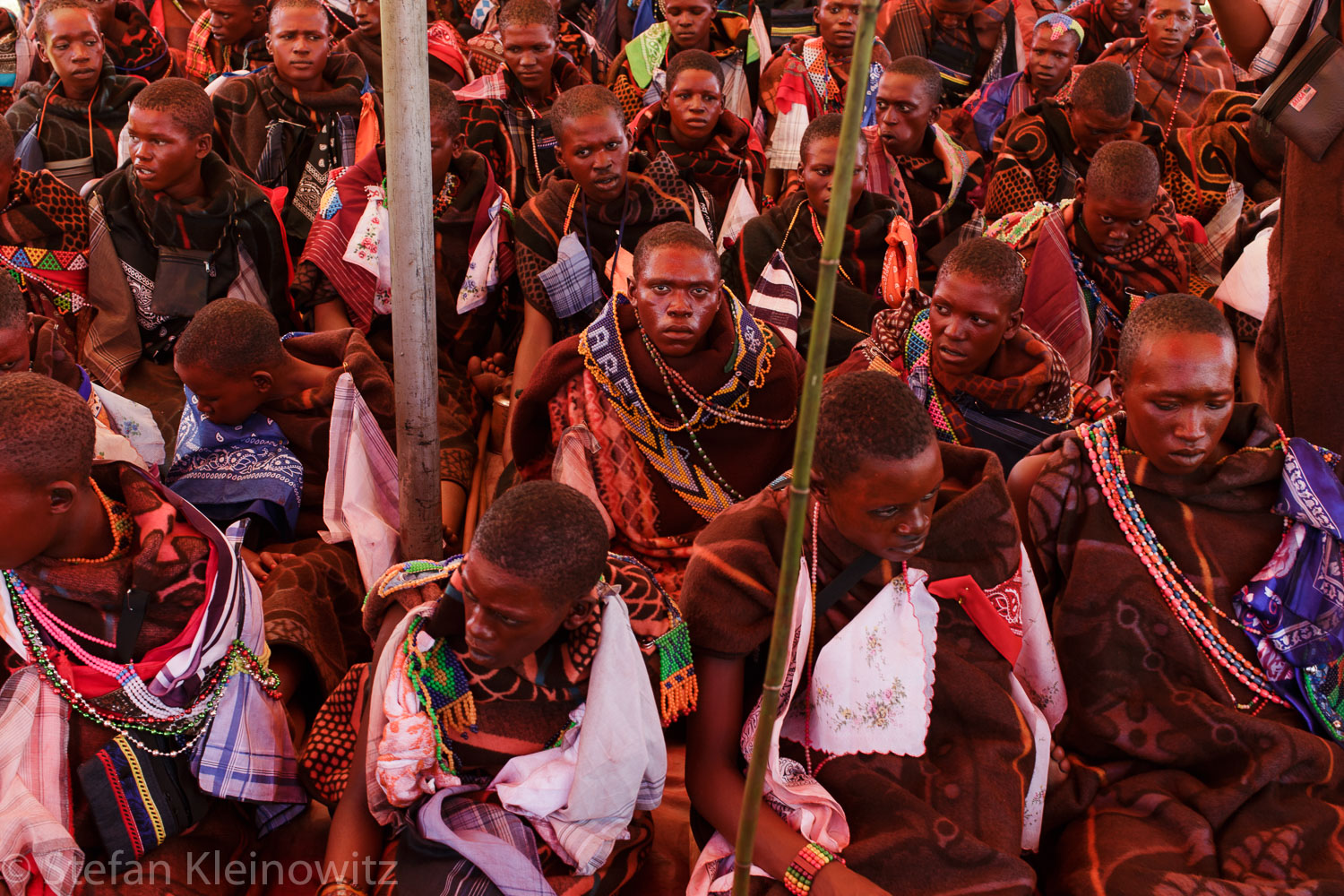
Hlubi initiates from the Sotho tribe just returned from the mountains, sit under a tent and sing traditional songs. Then, each of the initiates stands up and introduces himself, and his new clan name to the audience.
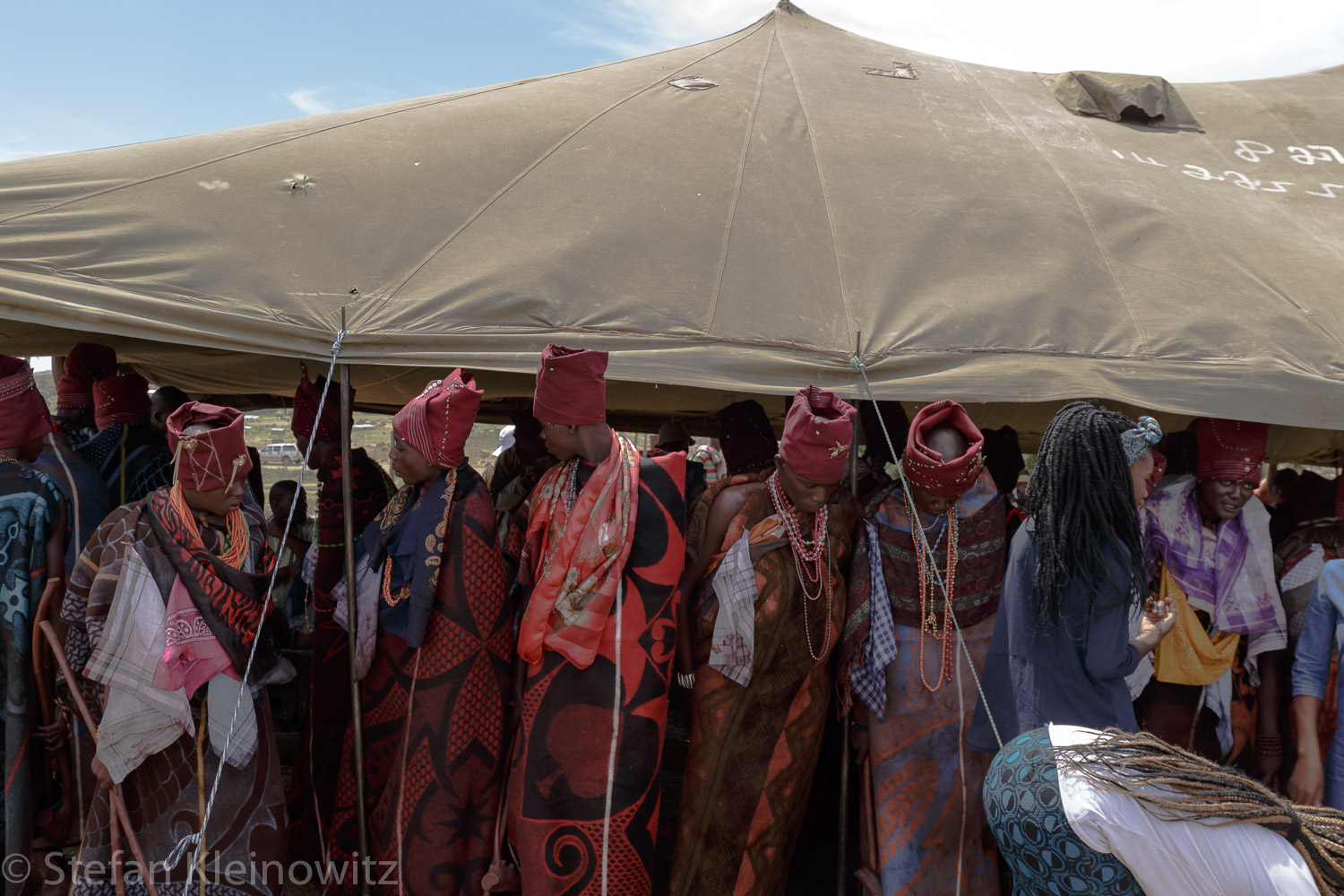
Sotho initiates just returned from the mountains, sit under a tent and sing traditional songs. Each of the initiates stands up and introduces himself, and his new clan name to the audience.
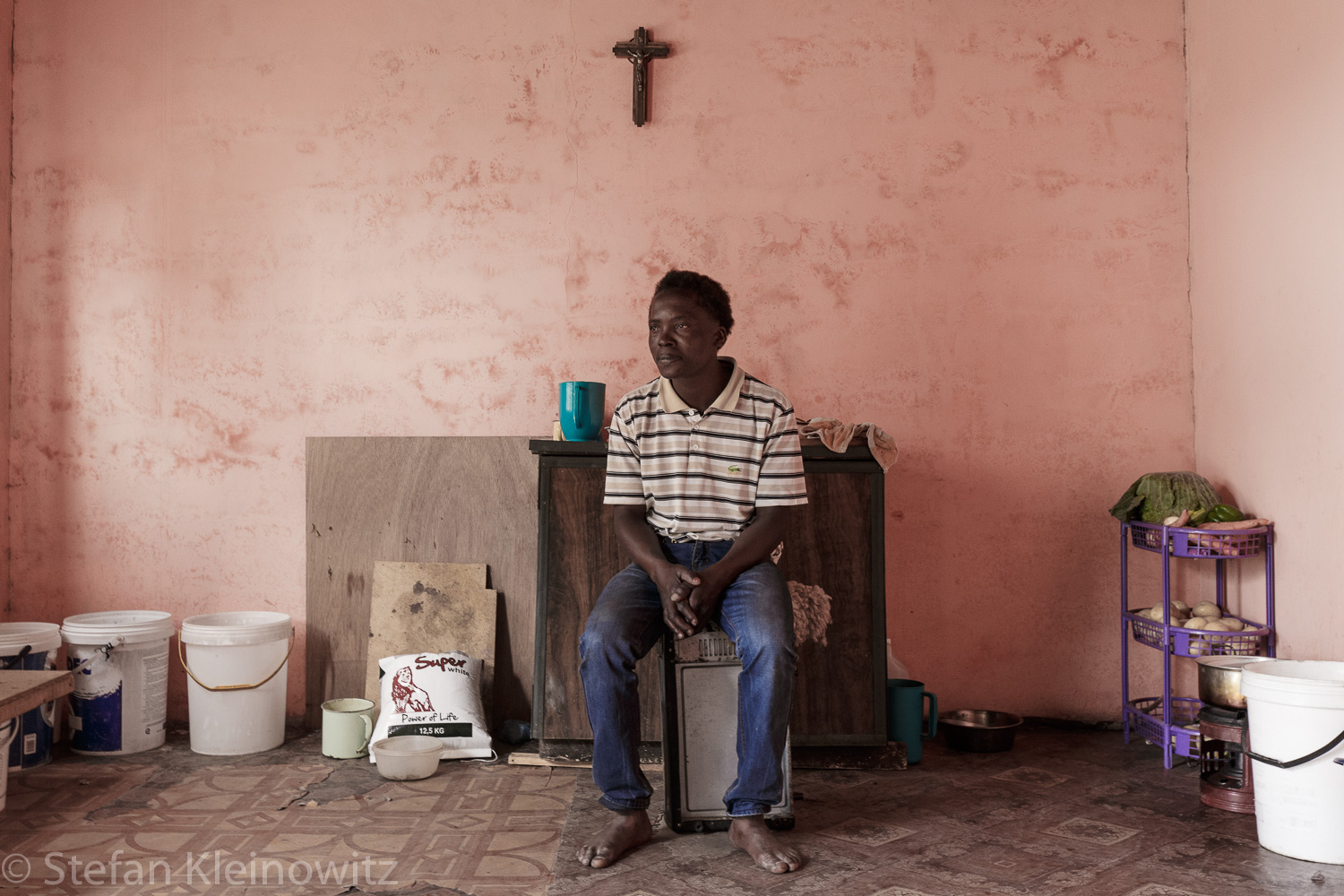
Kagiso, 35, sits in his mud house, which serves as a kitchen and a sleeping room for him and his two brothers.
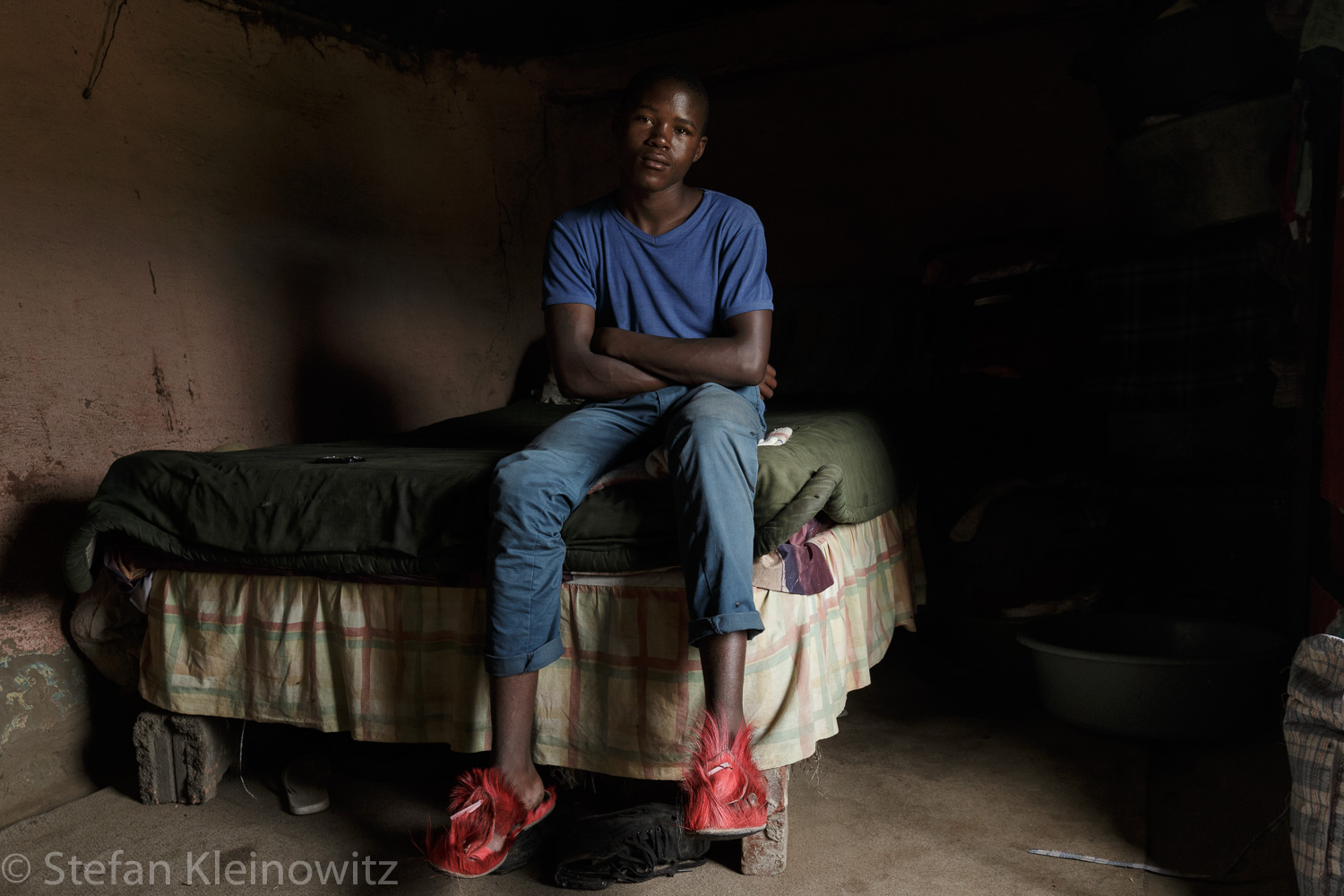
Thebo, 20, dropped out of school and sells cannabis. 'My friends who finished school are all without a job, or they have left to Johannesburg.































Early in the morning, school children brush their teeth in the garden and prepare for school.
Luis, 14, sits on the bed in one of his family's mud houses, which he shares with his older brother and father. The blue round shaped house serves as a sleeping room, community area and a kitchen.
Thabo, 13, rides his horse home.
Bulelani, 29, ex convict at an initiation ceremony and a proud member of the 28 gang.
Three friends ride their horses in a small village named Zikhalini, in Matatiele - Eastern Cape Province. There are approximately 80 horses in this village, which is inhabited by Sotho and Xhosa people.
Three friends drink alcohol in the early evening outside a bar. Alcohol plays a big part of daily life at the Eastern Cape. Alcohol consumption is very normal and often explained as part of the culture. However, the alcohol consumed is no longer homemade traditional beer but strong and expensive liquor, which is enjoyed by many on a daily basis. People would often go without food for the entire day, but spend money on alcohol.
Xhosa women and mothers of initiates drink a lot of alcohol to celebrate their son's transition into manhood. Tomorrow their 'children' will return from the mountains and reunite with their families and communities as respected men.
Muhtle, 11, sits on his horse after a heavy rainfall.
Horses and dogs are loyal and loved companions in the villages of the Eastern Cape. Muhtle rides horses since the age of three. He says:
'I love horses. Riding a horse makes me happy. It makes me feel free. Sometimes it feels like flying.'
This is his father's horse; it is the strongest and biggest horse in the village.
James is 75, and grandfather of thirteen grandchildren. He owns five horses, fourteen cows, and over thirty chickens. This is his youngest horse, and his favourite. He says,that it is a bit stubborn and unpredictable, but very fast. The red blinkers help the horse to look straight, and prevent the horse from becoming distracted during a horse race. James uses it sometimes for fun. His grandchildren use it every day to travel, to look after the cattle, and to race across the villages.
A young girl attends a wedding and plays with her stylish smartphone. In villages in which people have gained financial power the living standards have increased drastically. Instead of cattle and horses, fashion, new cars, and smart phones have become status symbols of the new middle class.
Xhosa and Sotho men from two neighbouring villages meet to participate in a horse race.
Scwebu, 46, rushes home after a long day on the farm.
Xhosa men sit together and drink traditional home made beer.
About twenty-five people visit the Sunday church service. The attendees are family members, close friends and neighbours. The service lasts for more than three hours.
Thabo, 13, rides his horses home.
Friends and neighbours of a village drink bottles of Black Label in a small tavern.
Friends sit together after a horse race and drink beer.
Hlubi tribe initiates return home after they spent five weeks on the mountains. At 5:30 a.m in the morning, initiates throw their spears towards the rising sun.
Sabelo, 6, sits on his favourite horse.
A bride stands with a bouquet of flowers next to the car of her husband's family. In some larger villages of the Eastern Cape, where people have been able to accumulate wealth through cattle, farming and illegal diamond mining, German cars such as a VW Polo or Mercedes Benz have become the new status symbol. Cars and bigger houses with electricity and running water have replaced horses as a sign of wealth and social status.
A couple of the Xhosa tribe gets married.
A traditional healer reads the bones in front of him and tells his patient how to deal with family issues and other personal problems.
Hlubi initiates from the Sotho tribe just returned from the mountains, sit under a tent and sing traditional songs. Then, each of the initiates stands up and introduces himself, and his new clan name to the audience.
Sotho initiates just returned from the mountains, sit under a tent and sing traditional songs. Each of the initiates stands up and introduces himself, and his new clan name to the audience.
Kagiso, 35, sits in his mud house, which serves as a kitchen and a sleeping room for him and his two brothers.
Thebo, 20, dropped out of school and sells cannabis. 'My friends who finished school are all without a job, or they have left to Johannesburg.